#springs and autumns of mr lu
Explore tagged Tumblr posts
Text
One of the most significant, if also most cryptic, passages may come in the Springs and Autumns of Mr. Lü,* a survey of useful knowledge compiled in 239 BCE by one Lü Buwei, chief minister of the state of Qin.
*Springs and Autumns was a popular name for Chinese history books, meaning in effect "Years." "Annals" might be a good translation.
"Why the West Rules – For Now: The patterns of history and what they reveal about the future" - Ian Morris
#book quotes#why the west rules – for now#ian morris#nonfiction#significant#cryptic#springs and autumns of mr lu#survey#lu buwei#chief minister#qin
0 notes
Text
My Favorite Films and Performances of 2020
“I wish I could’ve seen it on the big screen.”
It was a strange year, and even stranger year of movie watching. In 2020 I saw only one of my top films in a theater, which is crazy (like much else over these past months). But the experience of keeping up with the movies this year was a reminder that great filmmaking can transcend the specifics of the viewing experience. In your living room, in bed, projected onto the side of a garage, streaming on Twitch, broken up into multiple sittings, maybe even on your phone (desperate times)… if doesn’t matter as long as it connects with you. A great film has the power to soothe and transport, to alter your perspective, to re-wire your brain. So while I didn’t get on a single airplane last year, I definitely went places. And I’m grateful for these changes of scenery. For the time-travel as well; last year in my house, we found great comfort in revisiting a bunch of old favorites. It was also an opportunity to finally watch a number of those older films that had someone evaded us… a year of catching up, now or never. We were members of a weekly movie club for some months — that was cool. Another pleasant silver lining was the emergence of virtual film festivals, which have been a fantastic opportunity. I hope that they can continue in some form when this pandemic is in the rearview. Because, you know, getting to Park City is a real schlep. All this to say: like you, I’ll always remember 2020. In this truly crummy year, the movies really helped.
I’m including some of the film festival stuff that’s coming out a little later, because the boundaries between 2020 films and 2021 films feels blurry to me without proper theatrical releases.
TOP 5, loosely ranked. I love these deeply.
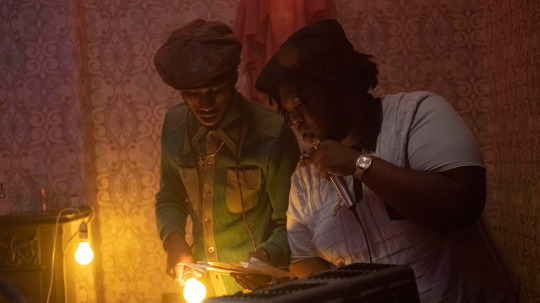
1. LOVERS ROCK, Steve McQueen

2. NOMADLAND, Chloe Zhao

3. ANOTHER ROUND, Thomas Vinterberg

4. TIME, Garrett Bradley
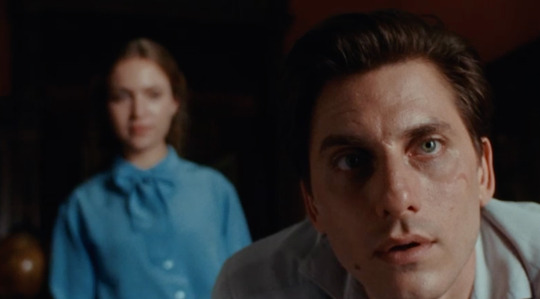
5. MARTIN EDEN, Pietro Marcello
--------------------
The rest of the Top 25, in alphabetical order. I loved these.

À L’ABORDAGE, Guillaume Brac

BACURAU, Kleber Mendonça Filho

COLOR OUT OF SPACE, Richard Stanley
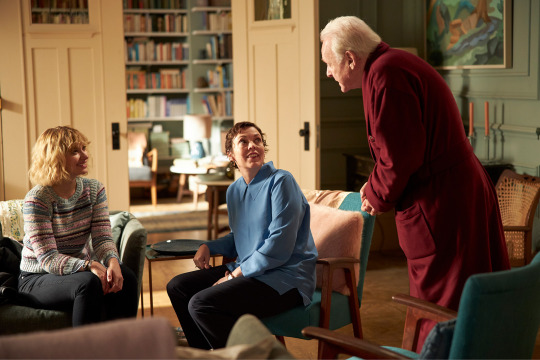
THE FATHER, Florian Zeller
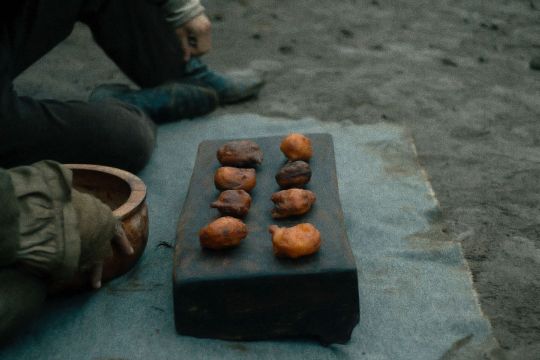
FIRST COW, Kelly Reichardt

I’M THINKING OF ENDING THINGS, Charlie Kaufman

JASPER MALL, Bradford Thomason and Brett Whitcomb
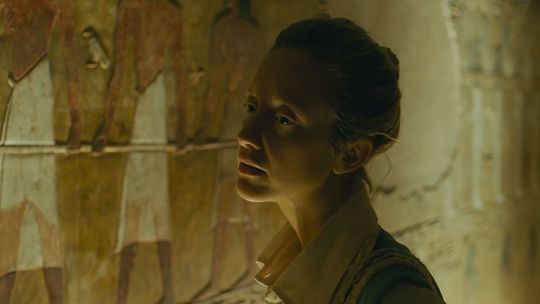
LUXOR, Zeina Durra
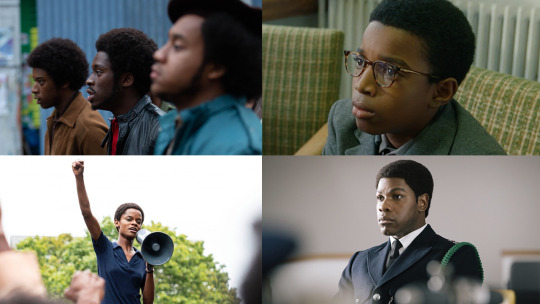
ALEX WHEATLE / EDUCATION / MANGROVE / RED, WHITE AND BLUE, Steve McQueen
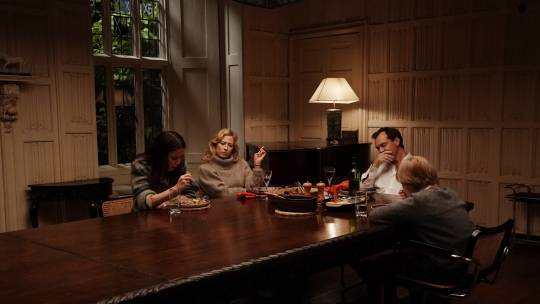
THE NEST, Sean Durkin

NEVER RARELY SOMETIMES ALWAYS, Eliza Hittman

NEW ORDER, Michel Franco
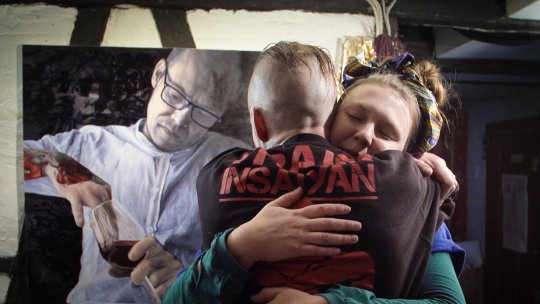
THE PAINTER & THE THIEF, Benjamin Ree
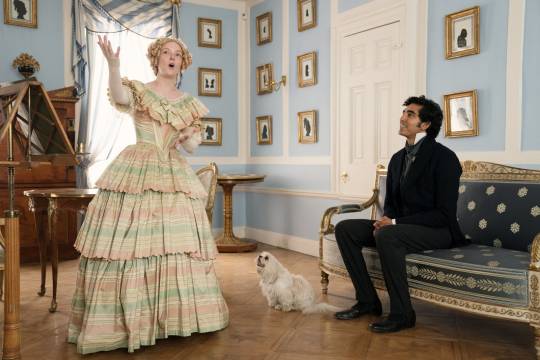
THE PERSONAL HISTORY OF DAVID COPPERFIELD, Armando Iannucci
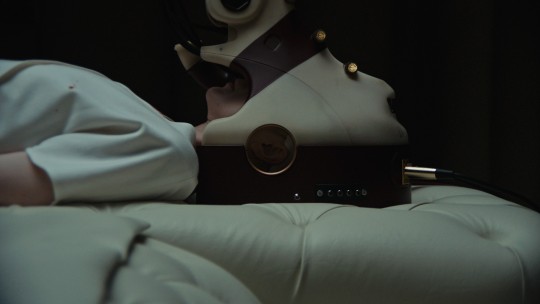
POSSESSOR, Brandon Cronenberg

PROMISING YOUNG WOMAN, Emerald Fennell
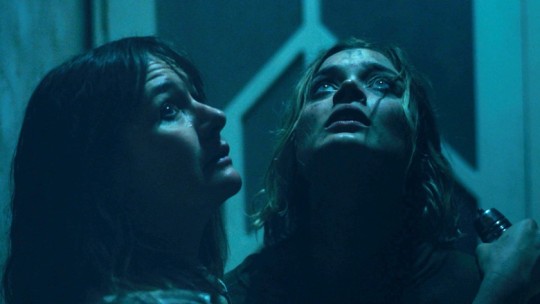
RELIC, Natalie Erika James

SAINT FRANCES, Alex Thompson
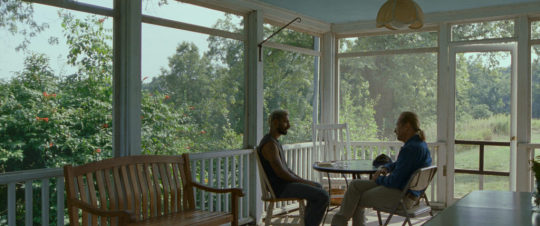
SOUND OF METAL, Darius Marder
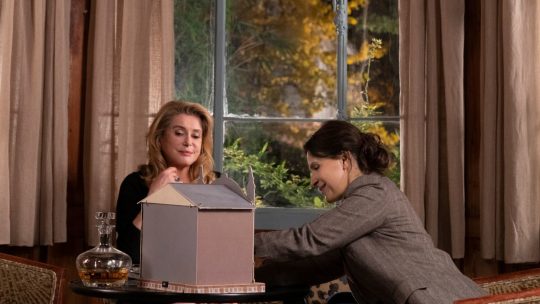
THE TRUTH, Hirokazu Koreeda
--------------------
I also enjoyed (some more than others):
Apples, The Assistant, Babyteeth, Bad Education, Black Bear, Blow the Man Down, Borat Subsequent Moviefilm, Butt Boy, The Climb, Da 5 Bloods, Deerskin, Emma, The Father (Bulgaria), Greed, His House, The Hunt, I Used to Go Here, I'm No Longer Here, Impetigore, The Intruder, The Invisible Man, Kajillionaire, La Llorona, Let Them All Talk, Lost Girls, The Man Who Sold His Skin, Mank, Never Gonna Snow Again, News of the World, One Night in Miami, Palm Springs, Preparations to Be Together for an Unknown Period of Time, Rebecca, She Dies Tomorrow, Shirley, Slow Machine, Sorry We Missed You, Soul, Spree, Straight Up, A Sun, Swallow, Tenet, Tesla, Tommaso, The Traitor, The Trip to Greece, True History of the Kelly Gang, Uncle Frank, Under the Open Sky, The Vast of Night, Vitalina Varela, Wendy, The Whistlers, Wildland, Young Ahmed
--------------------
And these documentaries!

American Murder: The Family Next Door, The American Sector, Assassins, Beastie Boys Story, The Bee Gees: How Can You Mend a Broken Heart, Bloody Nose Empty Pockets, Boys State, Brainiac: Transmissions After Zero, Circus of Books, Class Action Park, Collective, Crip Camp, David Byrne's American Utopia, Dick Johnson is Dead, Fireball: Visitors From Darker Worlds, The Go-Go's, Gunda, Miss Americana, MLK/FBI, The Mole Agent, Mucho Mucho Amor: The Legend of Walter Mercado, My Psychedelic Love Story, Mystify: Michael Hutchence, Narrowsburg, On the Record, Other Music, Sisters with Transistors, Spaceship Earth, The Way I See It, Whirlybird
--------------------
And these shorts:

Bye Bye Body (which I edited), Fit Model, Friday Night Pizza for Daddy, Hard Cracked the Wind, The Human Voice, John Was Trying to Contact Aliens, Michael's Preference West, What Did Jack Do?, World of Tomorrow Episode Three: The Absent Destinations of David Prime
--------------------
My favorite performance of the year:
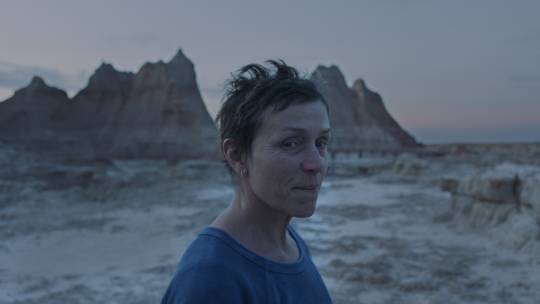
Frances McDormand as Fern in Nomadland
--------------------
Favorite ensembles:
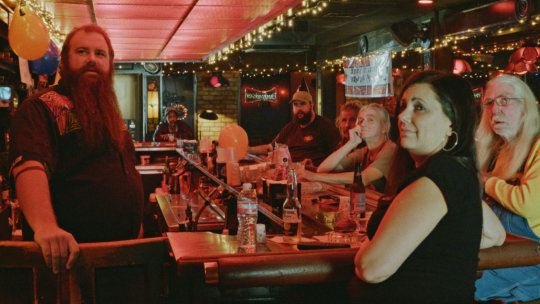
À l’abordage, Another Round, Bad Education, Babyteeth, Bloody Nose Empty Pockets, Blow the Man Down, Emma, First Cow, Kajillionaire, Let Them All Talk, Lovers Rock, Mangrove, Mank, One Night in Miami, The Personal History of David Copperfield, Promising Young Woman, True History of the Kelly Gang
--------------------
More memorable (and in some cases under-discussed) performances:
Christopher Abbott as Colin Tate in Possessor and as Gabe in Black Bear
Idir Ben Addi as Ahmed in Young Ahmed
Riz Ahmed as Ruben Stone in Sound of Metal
Daniel Algrant as Kelvin Kranz in Let Them All Talk
Maria Bakalova as Tutar Sagdiyev in Borat Subsequent Moviefilm
Haley Bennett as Hunter Conrad in Swallow
John Boyega as Leroy Logan in Red, White and Blue
Rob Brydon as Rob Brydon in The Trip to Greece
Jessie Buckley as Young Woman in I’m Thinking of Ending Things
Nicolas Cage as Nathan Gardner in Color Out of Space
Salif Cissé as Chérif in À L’abordage
Sheyi Cole as Alex Wheatle in Alex Wheatle
Cleopatra Coleman as Trina in The Argument
Carrie Coon as Allison O’Hara in The Nest
Michael Angelo Covino as Mike in The Climb
Willem Dafoe as Tommaso in Tommaso
Charles Dance as William Randolph Hearst in Mank
Catherine Deneuve as Fabienne Dangeville in The Truth
Katie Findlay as Rory in Straight Up
Sidney Flanigan as Autumn in Never Rarely Sometimes Always
Johnny Flynn as George Knightley in Emma
Julia Garner as Jane in The Assistant
Robbie Gee as Simeon in Alex Wheatle
Chris Giarmo as himself in David Byrne’s American Utopia
Betty Gilpin as Crystal Creasey in The Hunt
Ethan Hawke as Hank in The Truth
Kris Hitchen as Ricky Turner in Sorry We Missed You
Anthony Hopkins as Anthony in The Father
Jonathan Jules as Dennis Isaacs in Alex Wheatle
Sandra Guldberg Kampp as Ida in Wildland
Joe Keery as Kurt Knuckle in Spree
Udo Kier as Michael in Bacurau
Orion Lee as King Lu in First Cow
Delroy Lindo as Paul in Da 5 Bloods
Peter Macdissi as Walid "Wally" Nadeem in Uncle Frank
Matthew Macfadyen as Wilcock in The Assistant
George MacKay as Ned Kelly in True History of the Kelly Gang
Yahya Mahayni as Sam Ali in The Man Who Sold His Skin
Luca Marinelli as Martin Eden in Martin Eden
Tuppence Middleton as Sara Mankiewicz in Mank
Mads Mikkelsen as Martin in Another Round
Wunmi Mosaku as Rial in His House
Elisabeth Moss as Cecilia Kass in The Invisible Man
Kelly O'Sullivan as Bridget in Saint Frances
Shaun Parkes as Frank Crichlow in Mangrove
Robert Pattinson as Neil in Tenet
Paul Raci as Joe in Sound of Metal
Kadeem Ramsay as Samson in Lovers Rock
Gayle Rankin as Marissa in The Climb
Tanya Reynolds as Mrs Augusta Elton in Emma
Tyler Rice as Detective Russell Fox in Butt Boy
Andrea Riseborough as Hana in Luxor
Cecilia Roth as Marta in The Intruder
William Sadler as the Grim Reaper in Bill & Ted Face the Music
Kenyah Sandy as Kingsley Smith in Education
Amarah-Jae St. Aubyn as Martha Trenton in Lovers Rock
David Strathairn as David in Nomadland
Michael Stuhlbarg as Stanley Edgar Hyman in Shirley
Swankie as Swankie in Nomadland
Tilda Swinton as Woman in The Human Voice
Kristin Scott Thomas as Mrs. Danvers in Rebecca
Steve Toussaint as Ken Logan in Red, White and Blue
Alec Utgoff as Zhenia in Never Gonna Snow Again
Jairaj Varsani as young David Copperfield in The Personal History of David Copperfield
Ben Whishaw as Uriah Heep in The Personal History of David Copperfield
Sharlene Whyte as Agnes Smith in Education
Letitia Wright as Altheia Jones-LeCointe in Mangrove
Ramona Edith Williams as Frances in Saint Frances
Kôji Yakusho as Masao Mikami in Under the Open Sky
Youn Yuh-jung as Soon-ja in Minari
Helena Zengel as Johanna Leonberger in News of the World
--------------------
Favorite pre-2020 films I saw for the first time in 2020:
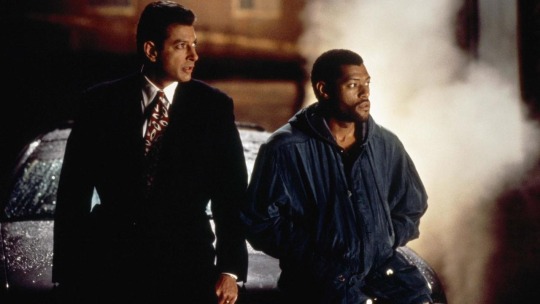
Blood on the Moon, But I’m A Cheerleader, Crooklyn, Cure, Daughters of the Dust, The Death of Dick Long, Deep Cover, The Draughtsman's Contract, Eyes of Laura Mars, Give Me Liberty, Greener Grass, Hardcore, High Hopes, The Last Party, Long Day's Journey into Night, Maiden, One Day Pina Asked, Persona, Right Now Wrong Then, Right On!, The Seventh Victim, Slightly French, Synonyms, Tammy and the T-Rex, Variety, The Watermelon Woman... and a tip of the hat to Coppola's new The Godfather Part III recut, The Godfather, Coda: The Death of Michael Corleone
42 notes
·
View notes
Text
Love Nikki Characters
Below is an alphabetical list of characters in the game Love Nikki: Dress Up Queen. For information on characters in the other games, please click the corresponding link below.
Nikki UP2U | Hello Nikki | Love Nikki | Shining Nikki
⚠️ This post is a work in progress. Links will be added as soon as the corresponding posts have been made. Thank you for your patience. ⚠️
A
Abbey
Ace
Agata
Ancient Pavilion Designer
Annabel
Aron
Autumn
Azula
B
Babbi
Bai Jinjin
Bai Yongxi
Baird
Blue (Actress)
Blue (Phoenix)
Bobo
Bobo’s Father
C
Cali
Cesare
Charbes
Charles
Chloris
Cloud Empress
Countess
Lady Crescent
D
Dansu
Debbie
Deslen
E
Eagle
Eberne
Elaine
Eli
F
Fantasy Envoy
Flora
Fu Su
G
Gray Raven
H
Hayden
Hiber
Hostess L
Huo Qishou
I
Imm
J
Jia Yuanbao
Joe Brownie
K
Kaja
Kane
Kiki
Kimi
Kyle
L
Lakris
Mr. Lancelot
Lionel
Lisa
Lord
Louie
Lu Yinian
Lunar
M
Mayor of Moonlit City
Mela
Ming Shuiyuan
Mira
Momo
N
Nelson
Neva
Nidhogg
Nikki
Nina
Noah
Nora Von Rhein
O
Orange
Orlando
Ozeca
P
Peachy
Prucius
Q
Qiong
Queen Elle
Queen Nanari
R
Rachel
Ransa
Reid Mercury
Royce
Rudfia
Ryan
King Ryan
S
King Sayet
Schiller
Shade
Sherry
Sophia
Spring
Star Seer
Starlet
Sue
Summer
Sylver
T
Timi
Toto
True King
Tuda
V
Vivi
Ms. Von Rhein
W
Winter
Wycliffe
X
Xiao Zong
Xinglin
Y
Yue Qianshuang
Yunikina
Yvette
Z
Zhong Lizi
Zhu Ruosheng
Zhu Yuxian

13 notes
·
View notes
Text
Rise of Sixteen States: Prologues 2
Later Han
(Liu Yuan)
Beginning of Jianwu (25 – 56 AD), the Xiongnu's Wuzhuliuruodi Chanyu's son, the Aojianrizhu King of the Right, Bi, established himself as Southern Chanyu, and entered to live in Meiji in Xihe. The presently abandoned Shizuoguo city was precisely where the Chanyu moved his courtyard.
(Yao Yizhong)
Yao Yizhong was a Qiang man from Chiting in Nan'an. His ancestors were the progeny of the Yu clan. Formerly, Yu of Xia ennobled Shun's younger son among the Western Rong, and for generations they were chieftains of the Qiang. Their descendant Shaodang was prominent in the space between the Tao (River) and (Fu)han. His seventh generation grandson Tianyu at the end of Han's (Jianwu) Zhongyuan era (56 – 57 AD) robbed and disturbed the western provinces. He was defeated by the Marquis of Yanghu, Ma Wu, and moved to set out beyond the frontier.
(This defeat took place in 59 AD.)
Yu's ninth generation grandson Qianna led the people of his kind to adhere inside. The Han court praised him, and made use of him as General of the Best of the Army, Colonel of the Western Qiang, and King who has Returned to Obedience, and settled him in Nan'an's Chiting.
(Liu Yuan)
Middle of Zhongping (184 -189), the Chanyu Qiangqu sent his son Yufuluo to command troops and assist the Han, to chastise and pacify the Yellow Turbans. It happened that Qiangqu was killed by the people of his state. Yufuluo used his multitudes to stay with the Han, and was established as Chanyu. During the chaos of Dong Zhuo, he robbed and plundered Taiyuan and Hedong, and camped in Henei.
Yufuluo died (in 195 AD), his younger brother Huchuquan was established. He used Yufuluo's son Bao as Worthy King of the Left, this was precisely Liu Yuan's father.
(It seems chronologically implausible that Liu Yuan's father was born as early as 195.)
(Li Te)
At the end of Han, Zhang Lu resided in Hanzhong. He used the Way of Ghosts to teach the hundred families. The Cong people respected and trusted him, and many went to serve him. Faced with great chaos Under Heaven, they relocated from Dangqu in Baxi to enter Hanzhong's Yanche Slope. They robbed and plundered travellers and sojourners. The hundred families were troubled by them, and titled them as the Yanche Ba.
When Wu of Wei overcame Hanzhong (in 215), Te's grandfather Hu, together with Du Huo, Po Hu, Yuan Yue, Li Hei of Yangche, and others brought along more than 500 families to revert to Wei. Wu of Wei praised him, designated Hu and others as Generals, and relocated them to Lüeyang. (HYGZ: Li Tewas a native of Linwei in Lüeyang.) Those who moved inside likewise were more than 10 000 families, and dispersed to dwell in the various commanderies of Longyou and in Sanfu and Hongnong. In the northern lands, they were then titled as Ba people.
(Liu Yuan)
The Southern Chanyu, Huchuquan, entered court (in 216). Wu of Wei following that detained him, and made to divide his multitudes to be five sections. He used the Worthy King of the Left, Bao, as Leader of the Left Section. For his remaining leaders he always used the Liu clan as them.
The Left Section resided at Zishi in Taiyuan. The Right Section resided at Qi. The Southern Section resided at Puzi. The Northern Section resided in Xinxing. The Middle Section resided at Daling. The Liu clan, although divided to live in five sections, always resided in Jinyang at the banks of the Fen and Jian.
Wei
(Murong Hui)
Qianluo was Murong Hui's eleventh generation grandfather. He wore gold and silver mail, rode a white horse with gold and silver saddle and girdle, and came down from Heaven. The Xianbei made a god of him, and pushed him forward as lord and chief.
His great grandfather Muhoba at the beginning of Wei led his various section groups to enter and reside in Liaoxi. He accompanied Sima King Xuan to chastise Gongsun Yuan (in 238), and was designated King who Leads the Righteous. He started to found the state to the north of Dajicheng.
At the time the young of years of Yan and Dai often wore “swaying steps [buyao] caps”. Muhoba saw and was fond of them. He therefore pulled in his hair and put on the cap. The various sections followed called him out as the “Swaying Steps”. His descendants pronounced it wrongly, and thereupon it became Murong.
(Baxter & Saggart: buyao: (b- + -u C)(y- + -jew A) murong: (m- + -u C)(y- + -jowng A))
His grandfather Muyan accompanied Wuquan Jian to campaign against Gaoli (in 244) and had merit. He had added to his titles Great Commander-in-Chief and Worthy King of the Left.
(Liu Yuan)
Liu Bao's wife Ms. Huyan in the middle of Wei's Jiaping (249 – 254 AD) prayed for a child at Longmen. Soon after, there was a one big white fish, on top of it were two horns. With lifted fins and jumping scales it then came to the place of sacrifice. After a long time it then left. The shamans were all amazed by it, and said:
This is an auspicious omen.
That night she dreamt in the morning she was seeing the fish change into a person. In his left hand he held something as large as a chicken egg, its brilliant shine not ordinary. He gave [it] to Huyan, saying:
This here is the sun's essence, ingest to give birth to an honoured child.
She woke up and told Bao. Bao said:
A good sign! I formerly followed Zhang Jiong of Handan. His mother, Ms Situ (?) assessed [me], and said I would have honoured sons and grandsons. For three generations they would surely be greatly prosperous. [They] copy and resemble each other, it fits together.
13 Months after this she gave birth to Yuan. When Yuan was born, in his left hand there was writing which said “deep ocean” (Yuanhai淵海), thereupon they used it to name him.
In childhood he was noble and intelligent. At seven sui he came upon grieving his mother, he beat his breast, leaped, shouted and cried, his laments moved the nearby neighbourhood. The lineage clan and section group all together sighed in appreciation. At the time the Minister of Works, Wang Chang, heard and praised him, he both dispatched condolences and funeral gifts.
As a young child he was yet fond of studying, and did not rest day or night. He had as teacher Cui You of Shangdang. He practised Mao's Poetry, Mr. Jing's Changes, and Mr. Ma's Book of Documents. He was particularly fond of Mr. Zao's Traditions on the Spring and Autumn, and Sun and Wu's Principles of War, and in generally in everything recite them. In the History, Han and the various Masters he was without nothing in summarizing and looking over. He once spoke to the students of the same school, Zhu Ji of Shangdang, Fan Long of Yanmen, and others, saying:
I always held in high regard the written transmittals, and often held low Sui and Lu for having no military ability, and Jiang and Guan for having no civil. The Way follows from a person's broadness, to have no knowledge of something is certainly the shame of a lordly man. The two masters coming upon the August Gao were not able to found a legacy of a marquisate. The pair of excellencies following Taizong were not able to begin being praised for local schools. How is it not a pity!
Hence he thereupon studied military affairs. He also in all crafts was marvellously cut above the multitudes. Reaching adulthood, he had ape arms and was good at shooting, his bodily strength and power surpassed ordinary people, his bearing and decorum was outstanding and imposing. He was 8 chi, 4 cun tall. His beard was more than 3 chi long, in the middle of it three red prominent hair, 3 chi, 6 cun long.
There were Cui Yizhi of Zhunliu and Gongshi Yu of Xiangling and others, both good assessors of people. When they saw Yuan, they were surprised, and then in the assessment speech said:
This person's body and countenance is not ordinary, never seen by me [before].
Hence he was deeply honoured and respected, he pushed forward affection joined with grace. Wang Hun of Taiyuan with humble heart befriended him, and instructed his son Ji to do obeisance to him.
In the middle of the Xianxi (264 – 265 AD), he became a hostage son in Luoyang. King Wen of Jin profoundly welcomed him.
(Yao Yizhong)
Na's great great grandson Kehui aided Wei's generals to tether Jiang Wei at Tazhong. Due to his merit, they made use of him as General who Garrisons the West, Colonel who Appease the Rong, and Chief-Controller of the Western Qiang.



6 notes
·
View notes
Text
诗词 | Poetry
Poems that were not attributed to to being written within a specific year are dated with the lifespan of their writer. If the poet has neither a birth nor death date on record, the dynasty in which they were born will be used instead. All dates are sourced from baidu, 16Jan21 and earlier.
Information on each poem is presented as such:
Poet’s name in pinyin (Poet’s life and death / Dynasty, start and end) | 《Title of collection if any》 Poem title (date it was written, as provided by baidu) - Link to fwoopersongs translation post.
■ Commentary □ Accompanied by images
SHANG - QIN DYNASTY 【1600 - 206 BCE】
Unknown | 《诗经》郑风·子衿 (1000 - 600 BCE) - Shijing: Airs of the State of Zheng · His Collar □
Unknown | 《诗经》国风·郑风·山有扶苏 - Airs of the State of Zheng, Mountains Have Leaning Shrubs ■□
Qu Yuan (340 - 278 BC) |《楚辞》 渔父 - Songs of Chu: The Fisherman ■
HAN DYNASTY 【206 BCE - 220 CE】
Unknown | 白头吟 (202 - 8 BCE, Western Han Dynasty) - lament for a wish ■
Kong Rong (153 - 208) | 临终诗 (208) - last words ■□
THREE KINGDOMS 【220 - 265】
Cao Zhi (192 - 232) | 蝉赋 (220 - 226) - Ode to the Cicada
TANG DYNASTY 【618 - 907】
Wang Wei (699 to 759) | 鹿柴 (742-756) - Deer Villa ■
Wang Wei (699 to 759) | 杂诗三首 (755 - 761) - miscellaneous poems three ■□
Li Bi (722 - 789) | 长歌行·天覆吾 - Long Song (Heaven is above)
Liu Yuxi (772 - 842) | 八月十五日夜玩月 - Frolic ‘neath the moon on Mid-Autumn’s night ■
Zhang Jiuling (678 - 740) | 感遇十二首 (737) - sentiments on the road
Li Bai (701 - 762) | 大堤曲 - Song of the embankments
Li Bai (701 - 762) | 独坐敬亭山 (744) - Sitting alone on Mount. Jingting
Li Bai (701 - 762) | 侠客行 (744) - An Ode to Swordsmen ■□
He Zhizhang (655 - 744) | 回乡偶书·其一 (744) - Homecoming, random scribbles (½) ■
Li Bai (701 - 762) | 将进酒 (752) - An Invitation to Drink ■□
Li Ye (730 - 784) | 八至 - Eight Extremes
Du Fu (712 to 770) | 春望 (757) - The View in Spring
Zhang Wei (Tang Dynasty, 618 - 907) | 同王徵君湘中有怀 (758) - With Master Wang in Xiang Zhong, Speaking My Mind ■
Liu Changqing | 送灵澈上人 (761) - Seeing off Venerable Ling Che □
Du Fu (712 to 770) | 春夜喜雨 (761) - Delight at rain on a Spring night ■
Xu Ning (800s, exact date unknown) | 庐山瀑布 - Mt Lu Waterfall □
Yuan Zhen (779 - 831) | 离思·其四 (809) - Thoughts on Parting (Part 4) ■□
Bai Juyi (772 - 846) | 暮江吟 (822) - Sunset over the river, a song ■□
Bai Juyi (772 - 846) | 问刘十九 (772 - 646) - A question for Mr Liu □
Jia Dao (779 - 843) | 寻隐者不遇 - Failing to Meet the Recluse ■
Wen Tingyun (~812 - 866) | 新添声杨柳枝词 - Newly Added Melody to Willow Branch Lyric ■
Wen Tingyun (~812 - 866) | 商山早行 (859) - Morning Departure from Mount Shang ■□
Unknown (Tang, Zhaozhong period, 867 - 904 ) | 三生石上旧精魂 - An Old Soul On the Stone of Three Lives ■
SONG DYNASTY 【960 - 1279】
Li Yu (937 - 978) | 浪淘沙令·帘外雨潺潺 (978) - Waves Washing the Sand (Ditty) · The Sound of Rain Beyond the Windows ■□
Li Yu (937 - 978) | 虞美人·春花秋月何时了 (978) - Lady Yu · Spring flowers, Autumn moon, oh when will they end? ■
Tang Hui (Southern Song Dynasty, 1127–1279) | 八声甘州·摘青梅荐酒 - Eight Melodies of Ganzhou (Pluck the plums to taste with wine) ■□
Lin Bu (967 - 1028) | 山园小梅二首 - Little Plum Blossoms of the Garden in the Mountain (2) ■□
Wang Qi Song (Song Dynasty, 960 - 1279) | 梅 - Plum Blossom ■
Liu Yong (Northern Song, 984 - 1053) 归朝欢·别岸扁舟三两只 - boats on the opposite shore ■
Qian Weiyan (977 - 1034) | 玉楼春·城上风光莺语乱 (1033 - 1034) - Above the city
Su Shi (1037 -1101) | 江城子·乙卯正月二十日夜记梦 (1075) - River Town Melody · A Dream on the 20th Day of the Second Month in the Year Yimao
Su Shi (1037 -1101) | 明月几时有 (1076) - When will the bright moon appear?
Su Shi (1037 -1101) | 定风波·莫听穿林打叶声 (1082) - Still the Wind and Waves • heed not the sound of rain in the forest
Su Shi (1037 -1101) | 题西林壁 (1084) - Written On this Wall in Xilin ■□
Li Zhiyi (1048 to 1117) | 卜算子·我住长江头 (1102 - 1117) - Song of Divination · I live at the Long River’s head ■□
Li Qingzhao (1084 - 1155) | 如梦令·昨夜雨疏风骤 - Song of a Dream
Li Qingzhao (1084 - 1155) | 一剪梅��红藕香残玉簟秋 - plum blossom cutting · red lotuses linger in remnants of fragrance ■□
Li Qingzhao (1084 - 1155) | 满庭芳·小阁藏春 - The Little Courtyard Hides Spring ■□
Xin Qiji (1140 to 1207) | 青玉案·元夕- Green Jadeite Platter · Fifteenth Day of New Year ■□
Lu You (1125 to 1210) | 己酉元日 (1189) - First Day of Ji-You ■
Lu You (1125 - 1209) | Cat Poetry Collection - Lu You and His Cats □
Shi Xinghai (1224 - ?) | 送清上人归苕溪 - Seeing off Venerable Qing ■
JIN DYNASTY 【1115 - 1234】
Wang Liangchen (? - 1218) | 九月七日饮 - seventh day of the ninth month, drinking □
YUAN DYNASTY 【1271 - 1368】
Wang Mian (1310 - 1359) | 徐竹隐 - Seclusion in the Bamboo Forest
MING DYNASTY 【1368 - 1644】
Li Zhishi (Ming Dynasty, 1368 - 1644) | 为何凝生 题十九首其十二 · 浣月池 - for what were we born 2/19 · Moonwash Pool ■
Wang Guangyang (? - 1379) | 画虎 - Tiger painting
QING DYNASTY 【1644 - 1912】
Nalan Xingde (1655 - 1685) | 长相思·山一程 (1682) - longing for home (a journey)
Kuang Minben (1699 - 1782) | 是非审之于己 (1754 - 1757) - On a couplet from the Yuelu Academy ■□
REPUBLIC OF CHINA【1912 - 1949】& AFTER
Fei Ming (1901 - 1967) | 飞尘 (1936) - the flight of dust motes ■
Dai Wangshu (1905 - 1950) | 在天晴了的时候 (1944) - When the sky is clear and sunny □
Xi Murong (1943 - Present) | 回眸 - Look Back ■□
Unknown | 道别 (unknown) - Saying Goodbye
POETRY THEMED SETS
for childhood nostalgia (the first Chinese poems I ever learnt) ■
ART
南洋景色 (1945, Strokes of Life: The Art of Chen Chong Swee) - Nanyang Scenery
22 notes
·
View notes
Text
Advanced Entomology - Chapter 3: Taxonomic Identification
Fandom: Mr. Love: Queen’s Choice/Love and Producer
Rating: Carolina Reaper (See Masterlist for rating descriptions)
Warnings: dubious/uninformed consent, see masterpost A/N
Due to the nature of the questionable consent in this fic, if you enjoy this story enough to reblog it, please reblog the masterpost rather than individual chapters.
Author’s Note: This chapter is an expanded version of what was originally posted as a standalone work. The very first thing I ever posted on this blog, as a matter of fact.
***********************************
She lies in his bed, facedown on the pillow. Her breathing is soft and even. The pale pre-dawn light filters in through the blinds, throwing faint stripes across her spine.
Lucien props himself up on one elbow, studying the effect. The bars of light fan over her ribs like the vanes of a dragon’s wing. The idea intrigues him; she’s no dragon, of course, his gentle, fragile butterfly, but wings . . . He trails his fingers lightly across her naked back, tracing the path of the light.
She stirs, a soft moan heralding her slide out of deep sleep. After a moment, she rolls her face towards him enough to open one eye and see him through the curtain of hair. “Lucien?” She breathes his name, barely loud enough to break the morning silence. He smiles gently and leans down to press a kiss to her forehead.
“Good morning, sleepyhead.” He continues to trace lines on her back, imagining what kind of wings might spring from her delicate shoulders. “No need to wake up yet, it’s still early.” She sighs in response, eye fluttering shut.
“That feels so nice,” she whispers. “It feels like you’re drawing a picture.”
Lucien chuckles softly. “In a way.” He leans down and presses another kiss between her left shoulder blade and her spine. “I was imagining,” he whispers against her skin, “what you might look like as a butterfly. If you had wings here,” he slides his mouth across her spine to the other side, “and here.”
She shivers under him, but her one visible eye stays closed. “What kind of butterfly would I be?”
“Hmmm.” He rolls back to his side of the bed, resting his head on the pillow to look directly at her face. “An excellent question.” He brushes her hair back from her face. “What do you think?”
“Something pretty, I think. Brightly coloured.”
Lucien isn’t sure if she knows the brightest coloured insects are usually poisonous, and butterflies are no different, but he humours her all the same. “Then I think one of the Nymphalidae would be best for you. The name is appropriate; you’re very nymph-like as you are.” He returns to running his hand slowly down her back while he ruminates. She sighs as his fingertips slide down the small of her back and circle lazily at the curve of her rear. “Perhaps kaniska canace, the blue admiral. It has dark wings, with an azure stripe along the edge.” He lets his fingers caress the fold where buttocks meets thigh, noting where the muscle twitches in response. “But blue doesn’t suit you. It’s too cool a colour.”
He props himself up again, rubbing the back of her thigh until the muscle relaxes again. “Maybe one of the vanessas, the painted ladies.” His hand starts to wander up its return path, and wavers near the cleft of her legs, as if considering. It’s not until her breath hitches that his hand moves on to trace her vertebrae. She sighs again, almost mournfully this time.
“I don’t think ‘painted lady’ suits you either.” He shifts towards her, breathing each word into her neck and shoulder. “Your appeal is entirely lacking in that kind of artifice.” Her breath hitches again, speeding up. His hand splays out in response, covering her entire shoulder blade and sliding around her ribs to tease at the side of her breast.
“No, I think there is only one butterfly for you. Danaus plexippus.” Lucien mouths his way to the back of her neck and starts slowly, deliberately, kissing his way down her spine.
“Does that one have -- ” she gasps as he hits a particularly sensitive spot. “-- a proper name?”
He smiles into her tailbone, resting his chin in the cleft of her buttocks and licking the dimple above each cheek before answering. “Of course. Its common name is the Monarch butterfly.”
“Monarch -- ah! -- butterfly?” Her question is interrupted by his sudden parting of her legs with one hand, the other hand resting lightly on the small of her back to keep her from rolling over. He slips his fingers into the shadowy gap, enjoying the warm damp smell of arousal.
“Oh yes.” He finds the sensitive nub of her with his fingers, and strokes it slowly as he slides the rest of his body down the bed, finally resting his face between her legs. “I can think of no better title for you, my butterfly.” He exhales warmly and has to retrieve his other hand to keep her thighs from clenching around his ears. “You are, after all, my Queen.” His tongue slips into her soft folds. She whimpers as his fingers speed up, and her legs widen as she tries to push back towards him.
“Oh, not yet, little butterfly.” He slides his free hand up her thigh and spreads her open wider, admiring the glistening pink flesh before him. “I’m not done worshiping my queen.” He licks her open, maintaining friction on her nub as his tongue slides inside her. His other hand wanders further back, until he’s drawing careful circles around her pucker.
“Lu -- Lucien. ” Her voice sounds scandalised, but the rest of her tightens around him in a way he recognises. He keeps the fingers of his right hand on her clitoris and slides his thumb deep inside her, pressing firmly with his left thumb at the same time. Her answering moan starts throaty, but quickly spirals higher as he feels her quake around him.
He doesn’t give her time to recover before he slides his fingers out of her, rubbing them against his thumb to gauge the slickness. Satisfied, he draws them back through her folds, trailing a wet line to the tight whorl between her cheeks. She shudders and stiffens when he begins to work his index finger into her, unsure how to react to this new intrusion. In Lucien’s mind, her phantom wings close tight together above her. He strokes her back with his open palm, soothing her like a restive horse.
“Just relax,” he murmurs, leaving his hand heavy between her shoulder blades, imagining the brilliant autumn leaf of her wings opening flat again to catch the rays of the rising sun. “I promise you’ll enjoy this.”
He knows better than to thrust at this early juncture, contenting himself with slowly coercing her body to accept the intermediate phalange of his finger. He pauses to admire the way the aperture constricts around his knuckle. She breathes shallowly under him, and he can feel the tension in her back.
“You know,” he says conversationally, “The Latin name of the monarch butterfly is the male form of Danae.”
In spite of herself, this catches her interest. He’s accustomed her to hanging on his every word by now, even in this situation where his hands should be louder than his voice. “Really?”
“Oh, yes.” Lucien rolls his hand, letting his finger press against every side of this tightest channel. She grunts, a tiny, unfeminine sound. “There was a man named Danaeus, another grandson of Zeus, so the story goes.” He assesses her resistance before crooking his finger slightly. Her hands spasm into the pillow, but she makes no protest.
“Species names are always male though, in Latin.” He leans over her, letting his weight settle on her back as his finger slowly rubs in and out of her. “A lepidopterist named Pyle said that he felt Klimt’s Danae, the golden shower Danae, was a much better inspiration.” He can feel her hips start to roll, pushing back into him as he starts to set a rhythm, pumping that finger back into her. He sets his teeth where her neck and shoulder meet, letting the scrape provide more stimulation as his left hand wriggles between her and the mattress, seeking her clitoris again. “I’m inclined to agree with him.”
Trapped under him as she is, overwhelmed with unfamiliar sensations, it takes no time at all for her to climax again, the pillow crumpling under her desperately clutching hands and muffling the ascending cries of pleasure.
At last she relaxes, sprawling bonelessly as he slides his hand out of her and reaches for a tissue. By the time he’s arranged himself beside her again, her breathing has evened out and she’s fast asleep. Lucien gently gathers her against himself, resting her head on his shoulder and draping her arm across his chest.
“Sleep a while longer, my queen.”
#mr love queen's choice#mlqc#mlqc fanfic#mlqc lucien#mlqc spoilers#writing#advanced entomology#rating: carolina reaper
7 notes
·
View notes
Link
“If people no longer fear death what good is threatening to kill them if people truly fear death and some act perverse and we catch and kill them who else would dare as long as people fear death the executioner will exist to kill in the executioner’s place is to cut in the carpenter’s place those who cut in the carpenter’s place seldom escape with hands intact”
-Lao-tzu- (Taoteching, verse 74, translation by Red Pine)
YIN WEN says, “Lao-tzu asks, if people are not afraid to die what good is threatening to kill them? If people are not afraid to die, it is because punishments are excessive. When punishments are excessive, people don’t care about life. When they don’t care about life, the ruler’s might means nothing to them. When punishments are moderate, people are afraid to die. They are afraid to die because they enjoy life. When you know they enjoy life, then you can threaten them with death” (Yinwen: 2).
LI HSI-CHAI says, “This implies that punishments cannot be relied upon for governing. If people are not afraid of death, what use is threatening them with execution? And if they are afraid of death, and we catch someone who breaks the law, and we execute them, by killing one person we should be able to govern the rest. But the more people we kill, the more people break the law. Thus, punishment is not the answer.”
MING T’AI-TSU says, “When I first ascended the throne, the people were unruly and officials corrupt. If ten people were executed in the morning, a hundred were breaking the same law by evening. Being ignorant of the Way of the ancient sage kings, I turned to the Taoteching. When I read, ‘If people no longer fear death / what good is threatening to kill them,’ I decided to do away with capital punishment and put criminals to work instead. In the year since then, the burdens of my heart have been lightened. Truly, this book is the greatest teacher of kings.”
WU CH’ENG says, “‘Perverse’ means ‘unlawful.’ If those who act perverse and break the law do not meet with misfortune at the hands of Humankind, they will certainly be punished by Heaven.”
HO-SHANG KUNG says, “If rulers teach according to the Tao and people respond with perversion instead, rulers are within their rights to arrest them and kill them. Lao-tzu, however, was concerned that rulers should use the Tao first before turning to punishment.”
LU HUI-CH’ING says, “The meaning of ‘the executioner will exist’ is the same as ‘the Net of Heaven is all-embracing / its mesh is wide but nothing escapes’ (verse 73). The executioner is Heaven.”
SU CH’E says, “Heaven is the executioner. If the world is at peace and people engage in perversity and rebellion, then surely they have been abandoned by Heaven. If we kill them, it is Heaven who kills them and not us. But if we kill those whom Heaven has not abandoned, we take the executioner’s place. And anyone who takes the executioner’s place puts themselves within reach of his ax.”
THE LUSHIH CHUNCHIU says, “A great carpenter does not cut” (1.4).
MENCIUS says, “The wise are not alone in desiring something greater than life and hating something greater than death. This is true of everyone. But the wise don’t forget it” (Mencius: 6A.10).
–
Our verses this week have been on fear and authority. On Monday, in verse 72, Lao-tzu said, “When people no longer fear authority, a greater authority will appear.” On Tuesday, verse 73, Lao-tzu said it was a matter of life and death. And in today’s verse, he ponders the question “If people no longer fear death, what good is threatening to kill them?” These verses have all been addressed to those who govern us.
If they are governing in such a way, that people no longer fear them, they no longer fear their punishments (death), then threatening them further won’t work. If those who govern us want to be able to succeed in governing us, they want us to truly fear death, and that means they need to be careful in how they govern us. In other words, they should fear us.
If you want people to act in a certain way, trying to compel them to act in that way isn’t the way to accomplish your end. The end never justifies the means. Your means always determines the end.
If you were to govern according to the Tao, the Way of Heaven, you would govern with moderation; and people; because they would then love their lives, would fear death. And fearing death, if some acted perversely, you could catch them and kill them; and no one else would dare to act that way.
But you are not governing according to the Tao, with moderation. So the people no longer fear you, or the death you mete out as punishment for their supposed wrong-doing. I say supposed, here, because you have heaped on so many rules and laws and ordinances (too many to count, and many that, quite frankly, run counter to all common sense), that your killing actually amounts to taking the place of the executioner (Heaven). In other words, you are killing those who Heaven hasn’t already abandoned. And Heaven will ultimately exact its retribution against you.
–
Red Pine introduces the following with today’s verse:
YIN WEN (350-284 B.C.). Eclectic philosopher of the state of Ch’i and author of a book of discourse that bears his name.
MING T’AI-TSU (1328-1398). Grew up in a family of destitute farmers, became a Buddhist monk, joined the rebellion against the Mongols (who had occupied the throne since 1278), and founded the Ming dynasty (1368-1644). His commentary, which he wrote without the help of tutors, was completed in 1374. Tao-te-chen-ching yu-chu.
LUSHIH CHUNCHIU (THE SPRING AND AUTUMN ANNALS OF MR. LU). Commissioned by Lu Pei-wei (d. 235 B.C.), this was probably the first Chinese text written with a unified plan. It purported to contain all that anyone needed to know of the world and was Taoist in conception. Not to be confused with The Spring and Autumn Annals of Master Yen or with The Spring and Autumn Annals written in the state of Lu and attributed to Confucius.
2 notes
·
View notes
Photo

Sun Moon Lake is almost synonymous with Taiwan’s scenery, it is located in Nantou County, Taiwan pond village water village, is Taiwan’s only natural lake. It is surrounded by mountains, lush forests, crystal clear crystal, crystal clear, visibility of 10 meters or more. Lake in the island emerged, the formation of “Castle Peak with clear water, Mingtan hold green beads,” the beautiful landscape. This island is the island of Lalu Island, this island for the community, the northern half of the lake shape such as round, the shape of the southern half of the moon, such as the moon, Sun Moon Lake hence the name. Boat tour lake, close to the lake, in order to fully understand the sun and the moon’s twilight beauty.
There are many ways to visit the sun and the moon, take the yacht around the lake, Sun Moon Lake cable car, Sun Moon Lake bike lane there are rivers around the lake are a good choice. Sun Moon Lake has three cruise terminals, water terminal, Yida Shao dock and Xuan Guang terminal, can choose either forward or reverse two routes in the three terminals between the voyage.
Sun Moon Lake Shun travel route, first through Chiang Kai-shek’s lake villa, saw a small woods, dense trees, which Han buildings you can not see, the only sign is the shore of a glazed tile roof, the following is the bunker, dew With a black gunhole; a few hundred meters along the lake and see a small woods, there is also a glazed tile yellow top kiosks, the shore has a white fence, said to be Mr. Chiang Kai-shek to Song Meiling lady’s garden.
Bypass the villa and the garden, yacht straight to the lake lake La Lu Island, is said to be bounded by the island, the northern half of the lake shape such as round, the shape of the southern half of the moon, such as the moon, Lalu Island around the same as the lake, there are many floating row, the above long there are many plants, it is used to purify the water. There is also a statue of white deer on the island of Lalu, which is related to a folklore.
Leave the city of Lalu, the yacht in the lake painted half a circle, heading for the other side of the mysterious light terminal, Xuan Guang dock on the shore there is a master of Xuanzang gold body of the mysterious light temple, the temple behind the Qinglongshan there are Mr. Chiang Kai-shek to commemorate the mother Built by mercy tower.
Sun Moon Lake’s main attractions are mainly concentrated in the mysterious light terminal, the pier is located at the foot of the mysterious temple, from the lake in the relatively close to the Lalu Island, Xuan Guang Temple is the tourist must go to the attractions here can be engraved with the sun and the lake signs stone. In Xuan Guang Temple after a dragon trail straight Xuanzang Temple, where flowers and trees, quiet and elegant environment. After the Xuanzang Temple and then up is one of Sun Moon Lake landmarks – Cien tower, where you can enjoy the entire sun and the moon.
Xuan Guang Dock is opposite the water terminal, after landing is Hanbi trail, east walk to Wenwu Temple, west walk to the cat mountain trail, and then walk to the cat mountain viewing platform, it echoes with the Cien tower. Here you can also enjoy the panoramic view of Sun Moon Lake, but also overlooking the nine mountains, where Sun Moon Lake is still the best place to watch the sunrise. And in the mysterious light terminal is not far from the east side of the dock is Ida, where there is a water museum mountain trail. If the foot is good, you can walk along the trail has been to the north, you can go to the water frog head trail, Dazhu Lake Trail, and then to the pine and cypress road and to Wenwu Temple.
Sun Moon Lake cable car is located in the eastern side of the sun and the moon, is between the tribe and the Nishashu culture village, the middle will be two high peaks of Buji Mountain. Along the way you can enjoy the whole picture of the sun and the moon. If you enter the Sun Moon Lake from the Nine Culture Village, you can take the Sun Moon Lake cable car free of charge and do not need another ticket. After arriving at the Yidashan tribe of Sun Yutao, you can visit the Xuanzang Temple and Xuan Guang Temple from west to Tu Ting Tsim Sha Tsui via the Hill Road. Or continue in the mysterious light wharf to continue to take a cruise to the other side of the tour.
And Sun Moon Lake bike lane of the starting point is located in the mysterious light temple, can be through the lake on the 1st tunnel to Mingtan outlet about 8 km, this section along the south bank of meandering shuttle trails, along the ecological, rich and varied forest, Midway can be south of the head of the community basin, north of the Qinglong Mountains, is a perfect choice for riders free kicks. In addition, the annual spring, here is the most famous Sun Moon Lake cherry ground. Spring to the edge of the cherry blossom in full bloom, a colorful scene. Speaking of Sun Moon Lake, in addition to the scenery, the most impressive, but also “million people swim Sun Moon Lake” and “Water Flower Festival”, and these two activities, and cherry blossom season Sun Moon Lake year three events. Every year to the Mid-Autumn Festival, Sun Moon Lake Scenic Area Management Office and shops are busy preparing to meet this important event.
Visit Sun Moon Lake, you can choose from Taichung, Taiwan dry city station by Taiwan good line / Nantou passenger bus arrived Sun Moon Lake Aquarium Visitor Center, and then through the pool of the bus or the lake ferry to play. Sun Moon Lake next to the nine culture village, you can play together.
Sun Moon Lake, Castle Peak with clear water, light pool hold green beads, sun and moon shine was originally published on View Get
0 notes
Text
Records of Liu Yuan
The core of this text is a translation of the Yearly Annals of Liu Yuanhai in JS101, but where they provide additional information, I have added parts from other texts, primarily the parallell accounts in WS095, TPYL119 & ZZTJ (all likely to derive from the same source as JS101), but also some bits and pieces from other places in the JS. Text I could not reconcile with the main account appears in {} brackets. Because he shares his name with the Tang founder, Li Yuan, Liu Yuan appear throughout in the JS as Liu Yuanhai. I have altered this to Liu Yuan throughout for consistency with the other texts.
Liu Yuan, courtesy name Yuanhai, was a Xiongnu of Xinxing. His personal name violates Gaozu [of Tang]'s temple taboo. His ancestor was an offshoot of the Xia princely clan named Chunwei. For generations they lived among the Northern Di, for more than a thousand years. Arriving at Modun, he assailed and routed the Eastern Hu, in the west he ran off the Yuezhi, in the north he [got] submission from the Dingling, in the interior he raided Yan and Dai. [He had] 40 000 archers. Gaozu of Han was troubled by him, he sent Liu Jing to give over the Princess to accordingly marry him, making a covenant as brothers. For that reason the sons and grandsons thereupon dared make their family name the Liu clan.
Beginning of Jianwu [25 – 56], the Wuzhuliuruodi Shanyu's son, the Aojianrizhu King of the Right, Bi, established himself as Southern Shanyu, and entered to live in Meiji in Xihe. The presently abandoned Shizuoguo city was precisely where the Shanyu moved his courtyard.
Middle of Later Han's Zhongping [184 -189], the Shanyu Qiangqu sent his son Yufuluo to command troops and assist the Han, to chastise and pacify the Yellow Turbans. It happened that Qiangqu was killed by the people of his state. Yufuluo used his multitudes to stay with the Han, and was established as Shanyu. During the chaos of Dong Zhuo, he robbed and plundered Taiyuan and Hedong, and camped in Henei.
Yufuluo died, his younger brother Huchuquan was established. He used Yufuluo's son Bao as Worthy King of the Left, this was precisely Yuan's father. He entered court. Wu of Wei because of that detained him, and made to divide his multitudes to be five sections. He used the Worthy King of the Left, Bao, as Leader of the Left Section. For his remaining leaders he always used the Liu clan as them.
In the middle of Taikang [280 -289], changed to set up Chief Commandants. The Left Section resided at Zishi in Taiyuan. The Right Section resided at Qi. The Southern Section resided at Puzi. The Northern Section resided at Xinxing. The Middle Section resided at Daling. The Liu clan, although divided to live in five sections, always resided in Jinyang at the banks of the Fen and Jian.
Bao's wife Ms. Huyan in the middle of Wei's Jiaping [249 – 254 AD] prayed for a child at Longmen. Soon after, there was a one big white fish, on top of it were two horns. With lifted fins and jumping scales it then came to the place of sacrifice. After a long time it then left. The shamans were all amazed by it, and said:
This is an auspicious omen.
That night she dreamt in the morning she was seeing the fish change into a person. In his left hand he held something as large as a chicken egg, its brilliant shine not ordinary. He gave [it] to Huyan, saying:
This here is the sun's essence, ingest to give birth to an honoured child.
She woke up and told Bao. Bao said:
A good signI formerly followed Zhang Jiong of Handan. His mother, Ms Situ [?] assessed [me], and said I would have honoured sons and grandsons. For three generations they would surely be greatly prosperous. [They] copy and resemble each other, it fits together.
13 Months after this she gave birth to Yuan. When Yuan was born, in his left hand there was writing which said “deep ocean” [Yuanhai淵海], thereupon they used it to name him.
In childhood he was noble and intelligent. At seven sui he came upon grieving his mother, he beat his breast, leaped, shouted and cried, his laments moved the nearby neighbourhood. The lineage clan and section group all together sighed in appreciation. At the time the Minister of Works, Wang Chang, heard and praised him, he both dispatched condolences and funeral gifts.
As a young child he was yet fond of studying, and did not rest day or night. He had as teacher Cui You of Shangdang. He practised Mao's Poetry, Mr. Jing's Changes, and Mr. Ma's Book of Documents. He was particularly fond of Mr. Zao's Traditions on the Spring and Autumn, and Sun and Wu's Principles of War, and in generally in everything recite them. In the History, Han and the various Masters he was without nothing in summarizing and looking over. He once spoke to the students of the same school, Zhu Ji: of Shangdang, Fan Long of Yanmen, and others, saying:
I always held in high regard the written transmittals, and often held low Sui and Lu for having no military ability, and Jiang and Guan for having no civil. The Way follows from a person's broadness, to have no knowledge of something is certainly the shame of a lordly man. The two masters coming upon the August Gao were not able to found a legacy of a marquisate. The pair of excellencies following Taizong were not able to begin being praised for local schools. How is it not a pity!
Hence he thereupon studied military affairs. He also in all crafts was marvellously cut above the multitudes. Reaching adulthood, he had ape arms and was good at shooting, his bodily strength and power surpassed ordinary people, his bearing and decorum was outstanding and imposing. He was 8 chi, 4 cun tall. His beard was more than 3 chi long, in the middle of it three red prominent hair, 3 chi, 6 cun long.
There were Cui Yizhi of Tunliu and Gongshi Yu of Xiangling and others, both good assessors of people. When they saw Yuan, they were surprised, and then in the assessment speech said:
This person's body and countenance is not ordinary, never seen by me [before].
Hence he was deeply honoured and respected, he pushed forward affection joined with grace. Wang Hun of Taiyuan with humble heart befriended him, and instructed his son Ji to do obeisance to him.
In the middle of the Xianxi [264 – 265 AD], he became a hostage son in Luoyang. King Wen of Jin profoundly welcomed him. Late in Taishi [265 – 274], Wang Mi of Donglai and others relied on him to connect with Hun. Hun also frequently told about him to Emperor Wu of Jin. The Emperor summoned and talked with him, and was greatly pleased with him. Afterwards he spoke to Wang Ji, saying:
Liu Yuan's appearance and countenance are fashionable and decorous, he is clever in conversation, perceptive and knowledgeable. Even Youyu and Midi has nothing to add.}
Ji replied, saying:
Yuan's decorous appearance, cleverness and perceptiveness is truly like the sagely purpose. As such his civil and military talents and capacity is superior to two masters in far-reaching. Your Majesty, suppose [we] rely on him accordingly for the affairs of the south-east, Wu and Kuai are not sufficiently pacified.
The Emperor considered it good. Kong Xun and Yang Yao advanced to say:
Your Subjects observe Yuan's talents, at present we fear we are without his equal. Your Majesty, suppose we make light his multitude, [it will be] insufficient accordingly to complete the affair. Suppose we make use of his power and authority, after the pacification of Wu, we fear him not then crossing north. He is not of our type of kin, and his heart is surely different. Yuan's talents and ability there are truly few who compares to. To rely on him accordingly with his original section, Your Subjects humbly have cold hearts for Your Majesty. Suppose [we] lift up the fastness of the Heavenly barrier to accordingly support him, is it not impossible?
The Emperor was silent.
Later Qin and Liang were overturned and lost. The Emperor inquired into the generals and leaders. Li Xi of Shangdang said:
Your Majesty, if indeed [you] are able to send out the multitudes of the Xiongnu's Five Sections, make use of Yuan with a single General's title, sound the drums and go west. Shujineng's head, we can point to the day when it will be displayed.
Kong Xun said:
Excellency Li's words are not the arrangement for completely ending our troubles.
Xi bursted out, said:
Considering the Xiongnu's strength and fearlessness, Yuan's understanding of troops, serving and proclaiming the sagely power, what is incomplete about it!
Xun said:
Yuan, if he is able to pacify Liang province, and behead Shujineng, [I] fear Liang province will soon have difficulties, that is all. When Jianlong obtained the rain cloud, he did not return to the pond.
The Emperor therefore desisted.
Later Wang Mi was going to return home east from Luoyang. Yuan bid him farewell at the banks of the Jiuqu. He wept and spoke to Mi, saying:
Wang Hun and Li Xi recognize [me] due to their countryside background, they always are raising up [my] insight. Slanderers in turn because of that then advance, and deeply dispute my desires, just sufficient to make [me] harmful. I had originally no thought on officialdom, only Your Honour clarified it. [I] fear death in Luoyang when the river and Master separates.
After that he with brave forbearance snorted and sighed, indulged in alcohol and long howls. The sound carried vibrantly, those sitting [there] had flowing tears from it. The King of Qi, You, at the time was at Jiuqu. When he heard it, he hurried off to inspect it, and saw Yuan was there. He talked to the Emperor saying:
[If] Your Majesty does not eliminate Liu Yuan, Your Subject fear Bing province will not be tranquil for long.
Wang Hun advanced to say:
When Yuan came of age, Hun made the lord and king guard and enlighten him. Moreover Great Jin just now manifests trust beyond the commonplace, embracing the far-away using virtue. How could it be that for suspicions without sprouts [you] kill a man and attending son, hence showing that Jin's virtue is limited.
The Emperor said:
Hun's words are correct.
It happened that his father Bao passed on. The Emperor used Yuan to replace him as Leader of the Left Section. At the end of Taikang [280 -289], changed Leader to be Chief Commandant, and used Yuan as Chief Commandant of the Northern Section. He clarified the penal law and prohibited the treacheries and perverted, made light of riches and was fond of giving, pushed forward integrity and connected with people. Of the Five Sections' eminent and outstanding nobody did not come. You and Ji's famous Ruists, the rear gates and flourishing gentlemen, who were not a thousand li away, likewise all travelled to him.
Yang Jun assisted the government. He used Yuan as General who Establishes Power and Great Chief Controller of the Five Sections, enfeoffed as Marquis of Hanguang district. At the end of Yuankang [291 – 299], he was charged with the section population rebelling and setting out from the frontier, and was dismissed from office. The King of Chengdu, Ying, was headquartered at Ye. Beginning of Yongning [301 – 302], he petitioned for Yuan to act as General who Soothes the Boreal and Overseer of the Army Affairs of the Five Sections.
Middle of Taian [302 – 303], Emperor Hui lost the government, the King of Qi, Jiong, the King of Chansha, Ai, together with the Ying and others, executed and exterminated themselves and each other. In the provinces and commanderies the faithless and presumptuous were rising up in a swarm. His granduncle the Chief Commandant of the Northern Section and Worthy King of the Right, Xuan, and others furtively discussed turning to rebellion, saying:
Formerly our ancestors made a covenant with the Han to be brothers, [their] worries and contentment similar to them. Since the fall of Han, the era of Wei and Jin has risen, and our Shanyu is only an empty title, without having a foot of land for patrimony. From [one of] the various Kings and Marquises, he has fallen to be similar to the registered households. Now our multitudes, though diminished, are still not reduced to 20 000, why is it [that we have] pulled back our hands and accepted to serve, for soon to exceed a hundred years!
Now the Sima clan's bones and flesh harm each other, in the Four Seas the tripods are boiling. To raise up the nation and restore the patrimony of Huhanxie, this is the time. The Worthy King of the Left, Yuan's bearing and capacity is beyond other people, his abilities and manners surpasses the generation. Suppose Heaven does not broadly honours the Shanyu, in the end it would not uselessly give birth to this man.
Hence they privately together pushed forward Yuan to be Great Shanyu. They therefore sent their partisan Huyan You to go to Ye and accordingly tell him about this plan. Yuan requested to go home to attend a funeral, Ying did not allow it. Yuan therefore ordered You to first return home, and tell Xuan and others to summon and assemble the Five Sections, and pull in and meet with the various Hu of Yiyang, to make sounds of obeying Ying, but actually betray him.
Ying became August Brother-Heir. He used Yuan as Colonel of Garrison Cavalry to the Brother-Heir. Emperor Hui attacked Ying, and stayed at Dangyin. Ying made use of Yuan as General who Assists the State and Commander-in-Chief of the Defence Affairs of the Northern City. When Emperor Hui had been defeated, he used Yuan as General of the Best of the Army, enfeoffed as Earl of Lunu. Soon after, the Inspector of Bing province, the Duke of Dongying, Teng, and the General who Calms the North and Inspector of You province, Wang Jun, raised troops to attack Ying. Ying's host fought and was defeated. Yuan spoke to Ying, saying:
Now the two garrisons tramples on restraint, with a multitude exceeding 100 000. [I] fear we will not be able to manage them with the personal guards and the nearby commanderies' gentlemen and people. Yuan will, Your Highness, return to explain to the Five Sections, assemble and gather a righteous multitude, and thereby hasten to the state's difficulties.
Ying said:
The multitudes of the Five Sections, can they protect and set out already or not? Allowing for you being able to send them out, the Xianbei and Wuhuan are strong and quick like the wind and clouds. How easily can it be done? I wish to serve the Driving Carriage and return to Luoyang, and avoid their spear points, calmly summon Under Heaven to arms, and govern them according to their opposition or loyalty. Lord, what are your thoughts?
Yuan said:
Your Highness is the son of the Martial August Emperor, and has special merits in the royal house. Your power and kindness shine in harmony, the Four Sea's reverent wind. Who would not consider to lose their lives and throw down their bodies for Your Highness? What is the difficulty in sending them out! Wang Jun is an upstart son and Dongying a distant cousin, how could they contend equally with Your Highness?
If Your Highness goes out alone from the Ye palace, and shows weakness to people, is it possible then to arrive in Luoyang? Suppose you reach Luoyang, power and authority will not be restored to Your Highness. A paper calling to arms is a foot-long letter, who will the person be who receives it!
Moreover the Eastern Hu's courage does not exceed the Five Sections. [I] wish Your Highness would encourage and console the multitude soldiers, calming them down and thereby quell them. [I] will, Your Highness, use two sections to destroy Dongying and three sections to put on display Wang Jun. You can point to the day when the heads of the two upstarts will be hanging up.
Ying was pleased and designated Yuan as Northern Shanyu, Assisting the Army Affairs of the Imperial Chancellor. Yuan arrived at Zuoguocheng. Liu Xuan and others elevated him to the title of Great Shanyu. Within twenty days the multitude was soon 50 000. He set his capital at Lishi. He dispatched the Yulu King of the Left, Hong, to lead 5 000 elite cavalry and meet up with Ying's general Wang Cui and resist the Duke of Dongying, Teng. But Cui had already been defeated by Teng, so Hong returned back with nothing done.
Wang Jun sent General Qi Hong to lead Xianbei and attack Ye. Ying was defeated, and held onto the Son of Heaven to run south to Luoyang. Yuan heard Ying had left Ye, he sighed and said:
Ying did not employ my words, on the contrary he is himself running from disaster. He truly has menial talents. However as I and him had words, I cannot but aid him.
Hence he instructed the Yulu King of the Right, Liu Jing, and the Dulu King of the Left, Liu Yannian, and others to lead 20 000 infantry and cavalry, and commanded them to punish the Xianbei. Liu Xuan and others firmly remonstrated, saying:
Jin is without the Way, slaves and lackeys govern us. Therefore the Worthy King of the Right's fierceness does not surpass his anger. Just now Jin's guide ropes are not spread. [If] the great affair is not followed through, the Worthy of the Right will smear [himself] with earth, to the Shanyu's shame.
Now in the Sima clan, father and son, elder and younger brother, are themselves [chopping] each other [like] fish meat, this is Heaven casting aside Jin's virtue and conferring it on us. [If] the Shanyu stores up virtue in his body, and is submitted to by the people of Jin, [he] soon will raise up our nation and tribe and restore the patrimony of Huhanxie. The Xianbei and Wuhuan are of our manners and type, and could be used as helpers, why would [we] resist them and aid [our] foes!
Now Heaven is acting through us and cannot be disobeyed. To disobey Heaven is not auspicious, to go against the multitudes is not helpful. [He who when] Heaven gives does not take, will in turn receive his calamity. [I] wish the Shanyu would not doubt.
Yuan said:
Good. [I] will be raising up the hill to the pinnacle mound, why would I make a hillock! As for Emperors and Kings, when where they regular? Yu the Great was born among the Western Rong, King Wen was born among the eastern Yu. Looking back, they were conferred for virtue, that was all. Now [I] see a multitude of more than 100 000, and anyone of us is a match for ten of the Jin. To strike the march and destroy chaotic Jin is like snapping deadwood, that is all. At best I can complete the legacy of Gao of Han, at worst I will be no less than the Wei clan. How is Huhanxie a sufficient course of action!
However, the people of Jin are not necessarily similar to us. Han had Under Heaven for many generations, kindness and virtue connection to the population's hearts. Thus though Zhaolie [lived] rough and rugged in the lands of a single province, he was yet able contend at an equal level Under Heaven. I am also a sister's child of the Han clan, sworn to be elder and younger brothers. When the older brother perishes, the younger carries on. Can we not do likewise? Now moreover, I can raise up Han, posthumously honour the Later Ruler, and thereby comfort the populace's expectations.
Xuan and others touched head to ground, saying:
[They] are not reaching up [to you].
1st Year of Yuanxi [304 AD], he moved to Zuoguocheng. The Jin people who [came from] the east to adhere were several ten thousand. Xuan and others sent up [to assume] the venerated title. Yuan said:
Now the Jin clan still exist, the Four Regions are not yet settled. [We] can look up to and honour the Exalted August's first regulations, and moreover designate [me] King of Han [while] for the moment delaying the tile of August Emperor. [When I] hear the cosmos is mixed into one [I] will once more discuss it.
10th Month [14 November – 10 December], he had an altar in the southern suburbs, and falsely ranked as King of Han. He sent down an order, saying:
Formerly our Grand Founder [taizu], the Exalted [gao] August Emperor used his divine martial ability to follow expectations, and broadly began the great patrimony. The Grand Ancestor [taizong], the Filial and Civil [xiaowen] August Emperor gave weight to using enlightened kindness, peace and prosperity was the Way of Han. The Generational Ancestor [shizong], the Filial and Martiaizul [xiaowu] August Emperor expanded the territory and repelled the yi, the territory exceeding the days of Tang. The Middle Ancestor [zhongzong], the Filial and Propagating [xiaoxuan] August Emperor, sought and lifted up the capable and outstanding, many scholars filled the court.
Hence the Way of our founder and ancestors strode pass the Three Kings, their achievements exalted as the Five Emperors. For that reason the foretold years were many times the Xia and Shang's, the foretold generations exceeded the Ji clan. But Yuan and Cheng had many crimes, Ai and Ping were briefly blessed. The traitorous subject Wang Mang overflowed Heaven and usurped disobediently.
Our Generational Founder [shizu], the Brilliant and Martial [guangwu] August Emperor was expansively endowed with sagely martial ability. He immensely restored the vast foundation, worshipped Han matched with Heaven, and did not neglect old matters, so that the Three Luminaries' obscurity were yet restored to clarity, the Three Receptacles' darkness were yet restored to visibility. The Manifesting Ancestor [xianzong], the Filial and Enlightened [xiaoming] August Emperor, and the Solemn Ancestor [suzong], the Filial and Articulating [xiaozhang] August Emperor, amassed eras, the blazing light twice revealed.
From He and An and afterwards, the august guide-ropes gradually decayed, Heaven's pace was hard and difficult, the state's government again and again cut off. The Yellow Turban seas boiled in the Nine Provinces, the crowd of eunuchs' poison flowed in the Four Seas. Dong Zhuo following that indulged his careless heedlessness, Cao Cao, father and son, fell rebels, were soon after.
For that reason Xiaomin let go and put aside the ten thousand states. Zhaolie strayed beyond Min and Shu, hoping the stoppage in the end would have exaltation, returning the carriage box to the old capital. How to assess Heaven not regretting the calamity, the Later Emperor was embarrassed and humiliated.
Since the altars of soil and grain were lost and ceased, the ancestral temple have not had blood to eat for forty years until this point. Now Heaven is coaxing its inner self, regretting the calamity to August Han, and making the Sima clan, father and son, elder and younger brother, repeatedly break and wipe out each other. The numerous multitudes are in the mud and soot, scattering to denounce and accuse.
This Orphan is now all at once pushed forward by the crowd of excellencies, to carry on offering to the Three Founders' legacy. Looking at [my] current crippled ignorance, [I] shiver in fear for collapsing in a shallow grave. However, as the great shame is not yet wiped away, the altars of soil and grain are without a host, with gall in the mouth and the roost cold, [I] will strive to follow the crowd's opinion.
He changed Jin's 1st Year of Yongxing to be the 1st Year of Yuanxi [“Inaugural Radiance”], there was a great amnesty Under Heaven. He posthumously venerated Liu Shan as the Filial and Cherished [xiaohuai] August Emperor. He established Gaozu of Han and below, three Founders and five Ancestors, as divine rules and worshipped them. He established his wife, Ms. Huyan as Queen, set up the hundred officials, and used the Worthy King of the Right, Xuan, as Imperial Chancellor, Cui You as Imperial Clerk Grandee, the Yulu King of the Left, Hong, as Grand Commandant, Fan Long as Great Herald, Zhu Ji as Grand Master of Ceremonies, Cui Yizhi of Shangdang and Chen Yuanda of the Rear Section both as Gentlemen of the Yellow Gates, his clan-child Yao as General who Establishes the Martial, the remainder were designated and conferred each proportionally. You firmly declined and did not go.
Cui You, courtesy name Zixiang, was a native Shangdang. As young he was fond of studying, he was discerning and enlightened in the Ruist methods, tranquil, peaceful, humble and withdrawn. From young to old his mouth not once spoke about wealth and profit. At the end of Wei, he was examined as Filial and Upright, and appointed Retainer of the Chancellor's Office. He set out to be Chief of Dichi, he was very kind in government affairs. He retired due to illness, and thereupon was disabled and sick.
At the beginning of Taishi [265 – 274], Emperor Wu favoured the succession from Emperor Wen's old office companions and staff, and attended on the family to designate a Palace Gentleman. Aged more than 70, he still esteemed studying and did not tire. He compiled a Chart of Mouring Clothes, which has come down through the ages. He passed on at home, at the time he was 93 years old.
12th Month [12 January 305 – 3 February], the Duke of Dongying, Teng, sent General Nie Xuan to chastise him, they fought at Daling. Xuan's host achieved defeat. Teng was afraid, he led more than 20 000 households of Bing province to go down East of the Mountain. Thereupon [the people who] lived there were robbed. Yuan dispatched his General who Establishes the Martial, Liu Yao, to rob Taiyuan, Xuanshi, Tunliu, Changzi and Zhongdu, all were lost to him.
He also dispatched the General of the Best of the Army, Qiao Xi, to rob Xihe. The Prefect of Jiexu, Jia Hun resisted steadfastly and did not surrender, saying:
I am a defender of Jin, [if I am] not able to maintain it, why cautiously seek to live therefore serving thieves and miscreants? How could I face accordingly to watch and breath in the world!
Xi was angry, apprehended and wanted to kill him. Xi's general Yin Song said:
[If] the General saves him, [he can] thereby convince [him] to serve the lord.
Xi did not listen and thereupon murdered him. Jia Hun's wife, Ms. Zong, had a beautiful figure and Xi desired to take her. Ms. Zong reviled him, saying:
Slave of the Tuge, how can you murder a person's husband then desire to assign [her] without decorum, how is this to you? Why do you not hurry and kill me!
Then she raised her head to Heaven and greatly wept. Xi thereupon murdered her. At the time she was (more than) 20 years old. Yuan heard about it, and greatly angered said:
If it is the Way of Heaven to be perceptive, the view of Qiao Xi has sown seeds!
When the pursuers returned, he demoted his salary four grades, collected Hun's corpse and buried it.
2nd Year} of Yuanxi [305 AD], Teng again dispatched Sima Yu, Zhou Liang, Shi Xian and others to chastise him. They stayed at Fencheng in Lishi. Yuan dispatched his General of the Tiger Teeth, Liu Qin, and others, with the Six Armies to resist Yu and others. They fought four times, and Yu was always defeated. Qin rearranged the battalions and returned.
This Year, at Lishi there was great famine. He moved to Liting, to thereby seek out the grain of the granaries and pantries. He kept his Grand Commandant, Liu Hong, and Army-Protector, Ma Jing, to defend Lishi. He sent the Great Minister of Agriculture, Bu Yu, to transport provisions to thereby give to them.
Yuan made one blade, 3 chi, 9 cun long, the writing said: “Wipe out the Traitors” in the clerical script.
3rd Year of Yuanxi [306 AD], Winter, 12th Month [1 January 306 – 30 January], used his General of the Van, Liu Jing as Envoy Holding Tally, Great Chief Controller of Conquering and Chastising. He intercepted and struck the Inspector of Bing province, Liu Kun, at Banqiao, and was defeated by Kun. Kun thereupon occupied Jinyang. His Palace Attendant Liu Yin and Brilliantly Blessed Grandee of the Right Wang Yu advanced to admonished Yuan, saying:
Your Highness, since [you] raised troops and onwards, bit by bit there has already been a single cycle, yet [we have] solely defended merely a region, the kingly power is not yet shaking. If indeed [you] were able to instruct the generals to set out in four directions and determine the moment with a single throw, to putg on display Liu Kun's head, settle East of the He, establish the title of Emperor, strike the drums to march and go south, overcome Chang'an then make the capital there, and use the multitudes of Guanzhong to roll up Luoyang, is like pointing to your palm, that is all. These were means by which August Emperor Gao created and began the vast foundation, overcoming and exterminating strong Chu.
Yuan was pleased and said:
This is in an Orphan's heart.
Yuan advanced to occupy Hedong. He attacked and robbed Puban and Pingyang, both were lost to him. Yuan thereupon entered to have his capital at Puzi. The counties, ramparts and fortifactions belonging to Hedong and Pingyang fully surrendered.
{WS001 & WS095: 11th Year [305 AD], Liu Yuan attacked Sima Teng. Teng again begged for troops. Emperor Huan personally led 10 000 light cavalry to save Teng, he beheaded Yuan's general Qiwu Tun. Yuan fled south to Puzi.
{JS062: Liu Yuan at the time was at Lishi, the distance between them was more or less 300 li Kun secretly dispatched to go among the assorted miscreants of his section. The surrendered were more than 10 000 groups. Yuan was very much afraid. He thereupon walled Puzi and settled there.}
4th Year of Yuanxi [307 AD], at the time Ji Sang raised up troops in Zhao and Wei. Luzhuyan of Shang commandery's Four Section Xianbei and the Di chieftain Shan Zhen both surrendered to him. Yuan thoroughly appointed them to offices and feudal ranks. Wang Mi of Donglai pulled in the troops to enter and rob Qing and Xu. The Inspector of Yan province, Gou Xi opposed, struck and greatly routed him. Mi spoke to his partisan Liu Ling, saying:
The Jin troops are still strong, going home there is no placefor burial. Liu Yuan formerly was a hostage son, I and him went around in the Imperial City. [We] deeply had affection and bond. Now [he has] declared [himself] King of Han. [I] want to return to him, can it be done?
Ling affirmed it. He dispatched envoys to come and surrender. He was designated Great General who Garrisons the East, Inspector of Qing province, and Duke of Donglai commandery.
4th Month [19 May – 16 June], {JS005: Summer, 5th Month [17 June – 16 July]} a leader of horse shepherds, Ji Sang, collected a multitude in rebellion, declared himself King of Zhao, and selected and set up provinces and commanderies. He defeated the Grand Warden of Wei commandery, Feng Song, and thereupon captured Yecheng and murdered the King of Xincai, Teng. He burnt the Ye palaces, the flames lasted ten days without extinguishing. He also killed the Forward Inspector of You province, Shi Xian, at Leling, and entered to plunder Pingyuan. The Duke of Shanyang, Liu Qiu, was murdered.
Autumn, 7th Month, jiyou [15 August], New Moon, the King of Donghai, Yue, advanced to garrison Guandu, to accordingly punish Ji Sang.
8th Month, jimao [14 September], New Moon, the General who Consoles the Army, Gou Xi [JS061], defeated Ji Sang at Ye.
9th Month, wushen [13 October], Gou Xi again routed Ji Sang, capturing his nine ramparts.
11th Month [11 December – 9 January 308], Shi Le and the Hu sections and others led the multitudes to come and surrender.
12th Month, wuyin [11 January 308], Tian Lan, Bo Sheng and others, natives of Bing province, beheaded Ji Sang at Leling.
1st Year of Yongfeng [308 AD] Spring, 1st Month [8 February – 8 March], the King of Han, Yuan, dispatched the General who Consoles the Army, Cong, and others, ten generals, to go south and occupy Taixing, and the General who Assists the Han, Shi Le, and others, ten generals, to go down east into Zhao and Wei.
{JS005: 3rd Month [8 April – 6 May], Liu Yuan invaded Ji commandery and roughly had the lands of Dunqiu and Henei.}
Wang Mi withdrew to assemble the absconded and dispersed. The multitudes were again greatly excited. Xi joned with them in battle, but was not able to overcome. Mi advanced the troops to rob Taishan, Lu state, Qiao, Liang, Chen, Runan, Yingchuan, Xiangcheng etc. commanderies
Summer, 4th Month, dinghai [19 May], he entered Xuchang, opened the offices and armories, and took the instruments and canes. At places that were lost and gone, he very much killed the wardens and prefects, and had a multitude of several ten thousand. The Imperial Court was not able to exercise authority. The various commandery Wardens wanted all to run away and leave. The Grand Tutor, [the King of Donghai,] Yue, dispatched his Marshal, Wang Bin, to lead 5 000 armoured soldiers to enter and guard the Imperial City.
5th Month [5 June – 4 July], Mi entered from Huanyuan, and defeated the Public Army at Yibei.
The Imperial District greatly shook. The palace and city gates were shut in daylight. The Minister over the Masses, Wang Yan, and others led the hundred officials to resist and defend.
On renxu [23 June], Mi arrived at Luoyang, he stayed at the Jinyang gate. A decree used Wang Yan [as] Commander-in-Chief of All Army Affairs of Conquering and Chastising.
On jiazi [25 June], Yan, together with Wang Bin and others, set out to fight.
On yichou [26 June], Mi burnt the Jianchun gate and went east. Yan dispatched the General of Guards of the Left, Wang Bing to pursue him. They fought at the 7 li Brook, and again defeated him. He therefore crossed the He to return to Yuan. He went with Wang Sang from Zhi Pass to Pingyang. Yuan heard and was greatly pleased. He dispatched his Palace Attendant and concurrent Imperial Clerk Grandee, Jiao Ying, to deliver a letter to Mi, which said:
Since the General has merit not of this generation, and surpasses the virtue of the times. Because of that [we] have this greeting, that is all. While waiting to gaze on the General's arrival, Your Orphan now has newly journeyed to the General's official residence, to straight away dust off the mat and cleanse the beakers, and respectfully wait on the General.
When Mi saw Yuan, he recommended declaring the venerated title. Yuan spoke to Mi, saying:
Your Orphan originally spoke to the General like Dou Zhougong, that was all. Now [you] truly are my Kongming and Zhonghua. Liezu had a saying: “I having the General is like the fish having water”.
Hence he appointed Mi Colonel Minister of Retainers, concurrently Palace Attendant and Specially Advanced. Mi firmly declined.
Autumn, 7th Month [3 August – 1 September], phoenixes assembled at Puzi. The Imperial Chancellor, Liu Xuan, and others, 64 people, sent up [to assume] the venerated title.
On jiachen [4 August], Liu Yuan robbed Pingyang. The Grand Warden, Song Chou, fled to the capital city. The Grand Administrator of Hedong, Lu Shu, battled powerfully and died there.
Winter, 10th Month, jiaxu [2 November], Liu Yuan usurped the title of August Emperor in the southern suburbs. A great amnesty and changed the inaugural to Yongfeng [“Eternal Phoenixes”].
11th Month [30 November – 28 December], used his son the General of Guards, He, as Great General, and the [General who] Consoles the Army, Cong, as Great General of Chariots and Cavalry. his junior kinsman the [General who] Establishes the Martial, Yao, as Dragon-Prancing Great General.
On bingwu [4 December], Han's Commander-in-Chief of All Army Affairs in the Centre and Outside, Great Marshal and acting Imperial Chancellor, the Worthy King of the Right, Xuan, passed on.
Liu Xuan, courtesy name Shize, was plain, blunt and with few words. He was fond of studying, and cultivated purity. His teacher was Sun Yan of Le'an. He was deeply focused on gathering thoughts, not resting day or night, and was fond of the Mao Poetry and Mr Zuo's Traditions. Yan always commended him, saying:
If Xuan had met Wu of Han, he would have exceeded Jin Midi.
When his studies were complete, he turned back. He did not set out from the village gates probably for several years. Always when reciting the Book of Han, when he reached the Biographies of Xiao He and Deng Yu, he not once did not turn around to chant them, saying:
A man of great talent, if he met the Two Founders, in the end he would not make the Two Excellencies alone hold first place in pleasing before [the ruler].
The Inspector of Bing province, Wang Guang, spoke about him to Emperor Wu. The Emperor summoned him to audience. He praised his divination replies, and because of that said:
When I had not yet seen Xuan, I said Guang's words were empty and that was all. Now I have seen him advancing and halting with manners and decorum, he can truly be said to be like a jade sceptre. Observing his natural quality, he is more than able to console and assemble his home section.
He therefore used Xuan as Chief Controller of the Right Section, and specially gave him a red cloth curved canopy. He managed the officials purely and respectfully, and for that the section cherished him.
Yuan became king [because of] Xuan's plans. For that reason he especially received respect and esteem, in merit and kinship he had no equal. In army and state, inside and outside, there was nothing he had not sole control of.
12th Month, yihai [2 January 309], Yuan used his Great General, Liu He, as Great Marshal, enfeoffed King of Liang, the Prefect of the Masters of Writings, Liu Huanle, as Great Minister over the Masses, enfeoffed King of Chenliu, the Empress' father, the Imperial Clerk Grandee, Huyan Yi, as Great Minister of Works, enfeoffed Duke of Yanzhou commandery. The imperial clan, considering the close and estranged as equals, were wholly enfeoffed kings of commanderies and counties. Those with a different family name, differentiated by their deeds and schemes, were all enfeoffed dukes and marquises of commanderies and counties.
1st Year of Herui [309 AD], Spring, 1st Month, xinchou [28 January], the Shimmering Deceiver [Mars] transgressed the Purple Eminence. The Prefect Grand Scribe, Xuanyu Xiuzhi, talked to Yuan, saying:
Your Majesty, although the dragon is rising and the phoenix soaring, and soon accepted the great instructions, yet the vestiges of Jin are not yet ended, the august dwellings are of slight account. The mishap of the Purple Palace is like a bell for the Jin clan. Before three years are gone, we will surely overcome Luoyang. Puzi is rough and steep, and not possible to keep calm for long. Pingyang's condition is to have purple vapours and is also the old capital of Taotang. [I] wish Your Majesty to above receive the empyrean apparition, and below to be in concord with the earthly omens.
In the middle of the Fen river there was obtained a jade signet. Its height was 1 cun, 2 fen, its area 4 cun. The writing said: “Has Newly [xin] Guarded It”, perhaps the signet of Wang Mang. Those who obtained it consequently added the three characters “The Abyssal [yuan] Seas [hai] Shines” and presented it. Yuan considered it providential for himself. A great amnesty and changed the inaugural to Herui [“River's Providence”].
3rd Month [28 March – 25 April], the General who Amasses the Crossbows of the Left, Zhu Dan, ran to Han. He set out and affirmed that Luoyang was isolated and weak, and urged Yuan to attack it. Yuan used Dan as Chief Controller of the Vanguard, and used the Great General who Wipes out the Jin, Liu Jing, as Great Chief-Controller. They commanded the troops to attack Liyang and overcame it. Dispatched the General of Chariots and Cavalry Wang Kan, to strike them. The kingly host achieved defeated at Yanjin. They drowned more than 30 000 men and women in the He. Yuan heard about and angrily said:
How can Jing face to see Us again? And how is Heaven's Way able to look up on him? Those who it is my wish to eliminate is the Sima clan, that is all. How can people of no importance be at fault?
He demoted Jing to be General who Pacifies the Caitiffs. Wang Mi was sent to accompany Liu Yao to rob Henei, and also attacked Lizhang together with Shi Le.
{JS005: 3rd Month [28 March – 25 April], Liu Yuan robbed Liyang. … Summer, 4th Month [26 April – 25 May], the General who Amasses the Crossbows of the Left, Zhu Dan, ran to Liu Yuan.}
Summer, Yuan used Wang Mi as Palace Attendant, Commander-in-Chief of All Army Affairs of Qing, Xu, Yan, Yu, Jing, and Yang provinces, Great General who Conquers the East and Shepherd of Qing province. He attacked Huguan together with the King of Chu, Cong, and used Shi Le as Chief-Controller of the Vanguard. Liu Kun dispatched the Army-Protectors Huang Su and Han Shu to relieve it. Cong defeated Shu at Xijian. Le defeated Su at Fengtian. In both cases they killed them. The King of Donghai, Yue, dispatched the Interior Clerk of Huainan, Wang Kuang, the Grand Warden of Anfeng, Wei Qian, and Generals Shi Rong and Chao Chao to chastise them. Kuang crossed the He, and wished to make a long chase and get in front. Rong said:
Those ones are exploiting the defiles to set out between them. Even if we had a multitude of several ten thousand, still this single army is only accepting the enemy. Or we make the Zu River to be a strength to thereby measure the shape and tendency, and afterwards plot against them.
Kuang angrily said:
Lord, do you wish to dispirit the multitudes!
Rong withdrew, and said:
Those ones are good at employing troops. Kuang is in the dark about the condition of affairs. We will now surely die.
Kuang and others went beyond Taixing. They caught up with Mi in battle between Gaodu and Changping. He greatly defeated them. The dead were six or seven out of ten. Chao and Rong died there. Cong thereupon routed Tunliu and Changzi. Altogether the beheaded and captured tallied 19 000. The Grand Warden of Shangdang, Pang Chun used Huguan to surrender to Han. Liu Kun used Chief Commandant Zhang Yi as acting Grand Warden of Shangdang. He occupied Xiangyuan. Yuan advanced Mi to Great General who Conquers the East, enfeoffed as Duke of Donglai.
5th Month [26 June – 23 July], enfeoffed his son Yu as King of Qi, and Long as King of Lu.
Wang Mi and Liu Yao, Shi Le and others attacked Wei commandery, Ji commandery and Dunqiu, and captured more than 50 fortifications. Again he and Le attacked Ye. The General who Calms the North, He Yu, abandoned the city and ran.
Autumn, 8th Month [21 September – 19 October], Yuan instructed his son Cong and Wang Mi to advance and rob Luoyang. Liu Yao with Zhao Gu and others to be their rear support. The King of Donghai, Yue, dispatched the Commander of the Palace Gentlemen of the North, Pei Xian to stay at Baima and chastise Mi, the General of Chariots and Cavalry, Wang Kan, to stay at Dongyan and chastise Le, the General who Pacifies the North, Cao Wu, to stay at Dayang and chastise Yuan. Wu's section General, Peng Mo, was defeated by Cong, and was murdered. The multitude armies all withdrew. Cong crossed the Yellow River. Cong and others pushed deep to arrive at Yiyang. The Duke of Pingchang, Mo, dispatched Generals Chunyu Ding, Lü Yi and others from Chang'an to chastise him. They fought at Yiyang. Ding and others achieved defeat. Cong relied on his continuous victories, and did not make preparations.
9th Month [20 October – 18 November],}{JS101: the Grand Warden of Hongnong, Yuan Yan, pretended to surrender. In a night assault, Cong's army was greatly and turned back. Yuan wore white clothes to welcome the host.
{JS005: 9th Month, bingyin [20 October], Liu Cong besieged Junyi. Dispatched the General who Pacifies the North, Cao Wu, to chastise him. On dingchou [31 October], the kingly host achieved defeat.
Winter, 10th Month [19 November – 17 December], Yuan again greatly sent out soldiers. He dispatched the King of Chu, Cong, Wang Mi, the King of Shi'an, Yao, and the King of Ruyin, Jing, to lead 50 000 spirited cavalry to rob Luoyang. The Great Minister of Works, Duke Gangmu of Yanmen, Huyan Yi, led foot soldiers to support them.
On bingchen [9 December], Cong and others arrived at Yiyang. The Imperial Court, since the Han troops were newly defeated, did not think they would arrive again, and were greatly afraid. {JS100: The Emperor dispatched the Colonel Minister of Retainers, Liu Tun, General Song Chou, and others to resist them, neither were able to withstand. Mi and Cong used 10 000 cavalry to arrive at the Imperial City, and burnt the two schools.}
On xinyou [14 December], Cong advanced to station at Ximing Gate. The Army-Protector Jia Yin at night pushed at him. Beigong Chun and others at night led more than 1 000 brave soldiers to set out and attack the Han fortifications. They fought at Daxia Gate and beheaded Cong's General who Conquers the Caitiffs, Huyan Hao. His multitudes thereupon scattered.
{JS005: Cong arrived at the Ximing Gate. Yue opposed him, fought outside of the Xuanyang Gate, and greatly routed him. Sent the General of Chariots and Cavalry, Wang Kan, and the General who Pacifies the North, Cao Wu, to chastise Liu Cong. The kingly host achieved defeat. Kan and others fled back to the Imperial City.
On renxu [15 December], Cong turned around the army and went south, he fortified at Luo River. Soon after he advanced to station at the Xuanyang Gate. Yao stationed at Shangdong Gate. Mi stationed at Guangyang Gate. Jing attacked Daxia Gate.
On yichou [18 December], Huyan Yi was killed by his subordinates. His multitudes dispersed from Dayang and returned home. Yuan counselled Cong and others to turn back the host. Cong petitioned, claiming that the Jin troops were few and weak, he could not for the reasons of Yi and Hao's death turn back the host. He firmly requested to stay and attack Luoyang. Yuan allowed it. The Grand Tutor, Yue, was surrounded in the city and defended himself.
On wuyin [31 December], Cong personally prayed at Song Peak, he ordered the General who Pacifies the Jin, King Ai of Anyang, Liu Li, and the General of the Best of the Army, Huyan Lang, and others to supervise the kept behind army. The Army Advisor to the Grand Tutor, Sun Xun advised Yue to exploit the absence and set out. Yue instructed Xun, Generals Qiu Guang and Lou Pou, and others to lead 3 000 tough soldiers of his personal retinue, to go from Xuanyang Gate and strike Lang. They beheaded him. Cong heard and hurried to return. Li feared Cong would blame him, went into the river and died. Wang Mi spoke to Cong, saying:
Now we have lost our sharpness, and Luoyang is still strong. The transport carts are at Shan, provisions and food will not be provided for several days. Your Highness, it is not as good as returning the host, wrap up provisions and send out soldiers, and calmly be later taking the lead. Your Subordinate Official will gathering soldiers and amass grain within Yan and Yu, and humbly listen and make ready for the appointed time. Is it not also possible?
Cong himself requested to stay, not yet daring to turn back. Xuanyu Xiuzhi again talked to Yuan, saying:
When the year is xinwei, we will get Luoyang. Now Jin's vapours are still abundant. If the great army does not return home, it will surely be defeated.
Yuan hurried to dispatch the Gentleman of the Yellow Gates Fu Xun to summon Cong and others to return the host. [The next xinwei year was 311 AD.]
11th Month, jiashen [6 January], Cong and Yao, returned home to Pingyang.
{JS005: Winter, 11th Month [18 December – 16 January], the beg-to-live leaders Li Yun, Bo Sheng and others led the multitudes to relieve the Imperial City. Cong withdrew and ran.}
Wang Mi set out from Huanyaun. Yue dispatched Bo Sheng and others to pursue and strike Mi. They fought at Xinji. Mi's host achieved defeat. Hence he held on to the guard post of Baoban, and turned back to Pingyang. He then used 20 000 cavalry to rob the various counties of Xiangcheng. The various drifting people of Hedong, Pingyang, Hongnong and Shangdang who were in Yingchuan, Xiangcheng, Runan, Nanyang and Henan were several ten thousand families. They were not treated decorously by the people who originally lived there. Everyone burnt down the cities and towns, and killed the 20 000 shi and chief magistrates to accordingly submit to Mi.
12th Month [17 January – 15 February], Yuan used the King of Chenliu, Liu Huanle, as Grand Tutor, the King of Chu, Liu Cong, as Great Minister of Works, the King of Jiangdu, Liu Yannian, as Great Minister of Works. He dispatched the Chief Protector Great General, the King of Quyang, Xian, with the Great General who Conquers the North, the General who Calms the North, Zhao Gu, the General who Pacifies the North, Wang Sang, to go east and set out for Neihuang. Wang Mi petitioned the Senior Clerk of the Left, Cao Yi, [as] Acting General who Calms the East, and tour Qing province, and moreover to welcome his family. Yuan allowed it.
2nd Year {of Herui [310 AD], Spring, 1st Month, [16 February – 16 March],Yuan established Shan Zheng's daughter as August Empress, his son the Great Marshal, the King of Liang, He, as August Heir-Apparent. A great amnesty. Enfeoffed his son Ai as King of Beihai. Used the King of Changle, Liu Yang as Great Marshal.
Han's Great General who Garrisons the East, Shi Le, crossed the He, and uprooted Baima. Wang Mi again used 20 000 people to met up with Shi Le, and rob Chen commandery and Yingchuan. He stationed at Yangyao, and dispatched his younger brother Zhang to rob Xu and Yan together with Shi Le, consequently they routed Yue's army.
Summer, 4th Month [15 May – 13 June], Wang Jun's General Qi Hong routed Liu Yuan's Inspector of Ji province, Liu Ling, at Guangzong, and killed him.
Autumn, 7th Month [12 August – 9 September], the King of Chu, Liu Cong, his junior cousin, the King of Shi'an, Yao, Shi Le, and the Great General who Calms the North, Zhao Guo, besieged the Grand Warden of Henei, Pei Zheng, at Huai, Decreed the General who Conquers the Caitiffs, Song Chou, to relieve it. Le and the Great General who Pacifies the North, Wang Sang, confronted and struck Chou, and killed him. {JS005: 9th Month [10 October – 7 November],} Yue Yang, a native of Henei, apprehended the Grand Warden, Pei Zheng, in rebellion, and surrendered to Shi Le. Yuan used Zheng as Assistant of the Left of the Masters of Writing.
8th Month [10 September – 9 October], gengwu [20 August], Yuan was bedridden with illness, and wanted to make plans for looking after responsibilities.
On xinwei [21 August], he used the King of Chenliu, Huanle. as Grand Steward, the King of Changle, Liu Yang, as Grand Tutor, the King of Jiangdu, Yannian, as Grand Guardian, the Minister over the Masses, the King of Chu, Cong, as Great Marshal and Great Shanyu. They were together to Record the Affairs of the Masters of Writing. He set up the Tribunal of the Shanyu west of Pingyang. He used his son, the King of Qi, Yu, as Great Minister over the Masses, the King of Lu, Long, as Prefect of the Masters of Writing, the King of Beihai, Ai, as Great General who Consoles the Army and acting Colonel Minister of Retainers, the King of Shi'an, Yao, as Great Chief Controller of Conquering and Chastising and acting Aide of the Left to the Shanyu, the Commandant of Justice, Qiao Zhiming, as Great General of the Best of the Army and acting Aide of the Right to the Shanyu, the Brilliantly Blessed Grandee Liu Yin as Supervisor of the Left, Wang Yu as Supervisor of the Right, Ren Yi as Master of Writing of the Personnel Section, Zhu Ji as Overseer of the Palace Writers. The Army-Protector Ma Jing to act as General of Guards of the Left, the King of Yong'an, Anguo to act as General of Guards of the Right, the King of Anchang, Sheng, the King of Anyi, Yin, and the King of Xiyang, Xuan, all to act as Generals of Martial Guards, and divide direction over the forbidden troops.
Earlier, at the time when Sheng was young, he was not fond of studying books. He only read the Classic of Filial Piety and the Analects, saying:
Recite these [and you are] able to act, they are sufficient. Why use many to recite and then not act!
Li Xi saw him, and replied, saying:
Gazing at him it is like [I] can be at ease. When he arrives, the dignity is like a stern lord. He can be said to be a lordly man!
Yuan, because of his loyalty and sincerity, when approaching the end appointed him accordingly to a critical duty.
On dingchou [27 August], Yuan's illness was critical. He summoned Huanle, Yang and others to enter within the forbidden [chambers] to accept the testamentary decree to assist the government.
{JS005: 6th Month [13 July – 11 August],} jimao [29 August], Yuan passed away in the Brilliant Eminence Hall. He had held the throne for 6 years, his bogus posthumous title was Brilliant and Civil [guangwen] August Emperor, his temple title was Exalted Founder [gaozu]. The tomb was titled the Eternal Brilliance Mound [yongguang ling]. The Heir-Apparent, He, was enthroned.
7 notes
·
View notes
Text
Records of Liu He
Liu Yuan had died on 29 August. This is a compilation of the parallel texts in JS101 and ZZTJ087.
He, courtesy name Xuantai, was 8 chi tall. He was valiant, resolute, and had pleasing manners and decorum. He was fond of studying and as a youth was fully formed. He practised Mao's Poetry, Mr. Zao's Spring and Autumn, Mr. Zheng's Changes. When he became the designated successor, on the inside he had many suspicions of jealousy and steered his subordinates without kindness. When Yuanhai died, He inherited the bogus rank.
The Lineage Corrector, Huyan You, was the son of Yi. Yuan, since he was without talented acts, he as a result personally did not change his office. The Palace Attendants Liu Cheng had a long-standing hatred for the King of Chu, Cong. The Commandant of Guards, the King of Xichang, Rui, was ashamed he was not prepared for looking after the instructions. They therefore planned together, and did not assist in looking after the instructions. They advised He, saying:
The Former Emperor did not particularly plan for the light and weighty, and made the three kings collect strong troops on the inside. The Great Marshal grasps a hundred thousand tough soldiers to reside in the nearby suburbs. Your Majesty now readily was made to temporarily have the throne, that is all. The calamitous difficulties of this is not possible to estimate. Consider Your Majesty, to soon do something about it.
He was precisely You's sister's son, and he deeply trusted him.
On xinsi [31 August], at night, he summoned the [Generals who] Leads the Army, the King of Anchang, Liu Sheng, the King of Anyi, Liu Qin, Ma Jing, and others to inform them. Sheng said:
The Former Emperor still is in the funeral palace, the four kings are not yet opposed to authority. Now to suddenly in a single morning ourself [make] fish meat of each other, Your Subject fear people will not nourish Your Majesty's after-comers. The Four Seas are not yet settled, the great patrimony is just now like this. [I] wish Your Majesty will use first completing the Former Emperor's vast foundation as [your] aspiration, and moreover block [your] ears and not listen to these words of insane negligence. The Poetry states: “Why no other people? [They] are not as good as my same fathers [i.e. brothers].” Your Majesty, as soon as [you] do not trust the various younger brothers, then who can [you] trust!
Rui and You angrily said:
In the discussions of today the reasoning has not been divided. [General who] Leads the Army, what words are these!
Hence he instructed left and right to cut him down. When Sheng had died, Qin and Jing in fear said:
Be it Your Majesty's decree, Your Subject and others will die to serve, and will do notthing but succeed!
They therefore swore an oath with each other in the Eastern Hall.
On renwu [1 September], Rui led Ma Jing to attack the King of Chu, Cong, at the Tribunal of the Shanyu.You led the King of Yong'an, Liu Anguo, to attack the King of Qi, Yu, at the Office of the Minister over the Masses. He sent Cheng and the [General of] Martial Guards, Liu Qin, to attack the King of Lu, Long, and the Master of Writing Tian Mi and the the [General of] Martial Guards, Liu Xuan, to attack the King of Bohai, Ai.
Mi, Xuan and others took hold of A to cleave the gate bars and flee to Cong. Cong instructed soldiers in linked armour to accordingly attend to them. Rui knew Cong was prepared, and hurried to turn back. He met with You, Cheng and others to attack Long and Yu. You and Cheng feared for Anguo and Qin were disloyal, and beheaded them. That day, they beheaded Yu.
On guiwei [2 September], they beheaded Long.
On jiashen [3 September], Cong attacked the Ximing Gate, and overcame it. Rui and others fled to enter the Western Palace. The vanguard followed them.
On yiyou [4 September], they beheaded He in the Brilliant Eminence Western Chamber. They gathered Rui, You and Cheng, and put their heads on display at the thoroughfare.
4 notes
·
View notes
Text
Biographies of four scholars
[Four short biographies from JS091]
Liu Zhao, courtesy name Yanshi, was a native of Dongping in Ji'nan. He was a descendant of Han's King Hui of Guangchuan. Zhao was broadly studied and generally knowledgeable. He was temperate, sincere and good at persuading. Those who followed and accepted his teachings numbered several thousand people. In the time of Emperor Wu he was five times nominated to the Excellencies' offices, and three times summoned as a Broad Scholar. Every time he did not go. He was content with little and delighted in the Way, immersing his heart writings and compilations. He did not set out from the courtyard of his gates for several tens of years.
He considered the Spring and Autumn the singular classic and the three schools different routes. The various Ruists' opinions on the approved and disapproved were confused, and they were mutual enemies and foes [?]. He therefore pondered the differences of the three schools, combined and then communicated them.
The Rites of Zhou has the office of Mediator. He made Mediators of Spring and Autumn in more than 70 000 words, everything was discussed from their beginning to end, making great and righteous without inconsistency. For those who at the time had not joined together, he exposed their strong and weak points to thereby communicate them.
He also made an explanation to the Spring and Autumn with Mr. Zuo, named the Whole Headle-Shaft. The Gongyang and Guliang's explanations and glosses were all entered into the middle of the classic and commentary, a vermilion [?] book accordingly separated them.
He also compiled Glosses and Annotations to the Changes of Zhou. He used the principal acts and the two kinds [?] to mutually communicate his writings. Altogether the helpful descriptions by him were more than 1 000 000 words.
There once was a person wearing boots and riding a donkey who arrived outside of Zhao's gates, and said:
I wish to see Liu Yanshi.
Zhao was Ruist with righteous way and integrity [?]. In Qing province nobody called him by his courtesy name, and the gate keeper [or “disciples”?] was very angry. Zhao said:
Listen before. [?]
When he had advanced, he squatted at the dais and asked Zhao, saying:
[I] have heard you Lord is a great knowledgeable. When comparing, how to compose it? [?]
Zhao replied like in the above affairs, and finally stated:
There is much which is uncertain.
The guest asked about them. Zhao discussed the uncertainties to the last one. The guest said:
These are easy to explain, that is all.
Following that [they] were disputing analysing the uncertainties, approving and disapproving and that was all. Zhao separately once more set up [his] opinions. [If?] the guest [found?] a single difficulty, Zhao was not able to answer. The guest left. He had already set out from the gates when Zhao desired to stop him. He sent people to loudly shout for him to come back. The guest said:
My relatives [or “parents”] are buried in this district. [I] ought to attend to them, afterwards I will come back again.
When he had left, Zhao ordered people to look in the burial place, but they did not see this guest. In the end he did not know his family or name.
Zhao passed on at the age of 66. He had five sons, Zhuio, Zhao#, Yao, Yu and Qi.
Fan Yu, courtesy name Zhichun, was a native of Lu in Jibei. For a number of generations [his ancestors] were Ruists with integrity, generous and friendly with the nine tribes. They travelled to stay in Qing province, extending until Yu for seven generations. At the time people nicknamed his family “boys without ordinary fathers, robes without regular masters”. Yu as young walked with lofty commitment, content with impoverishment and having aspirations for scholarship. When his father came to an end, he stayed at the burial place for more than 30 years. At the last and first day of the month, he personally swept tomb mound and went around the fencing trees. He returned to his family and then did not set out from the courtyard of his gates.
Someone recommended him to Emperor Wu. He was summoned to the vacancy of Literary Scholar to the King of Nanyang, Gentleman of the Private Writers, and Army Advisor to the Grand Tutor.. Every time he did not go. At that time in the lands of Qing, the scholars who hid and evaded [office], Liu Zhao, Xu Mao and others, all strove to teach and transmit. Only Yu dud not gather retainers, he was pure and serene, and protected himself.
At the time those who were fond of the ancient and longed for virtue discussed and consulted. [he?] likewise poured out [his] deepest feelings [?], using a single niche to display it. He combined the explanations and annotations of the Three Traditions, and compiled Spring and Autumn, Analysing Uncertainties, and Essay on Corporeal Punishment. Everything thus described made for more than 70 000 words. He combined the explanations and annotations of the Three Traditions, and compiled Spring and Autumn, Analysing Uncertainties, and Essay on Corporeal Punishment. Everything thus described made for more than 70 000 words. He passed on at the age of 71.
Xu Miao, courtesy name Shuzhou, was a native of Chunyu in Gaomi. For several generations they supported and assisted, always as Broad Scholars becoming commandery wardens [?].
His great grandfather Hua was extremely accomplished. He once stayed overnight at a precinct house. At night there was a divine person who told him the precinct was on the verge of collapsing. He at once set out and managed to escape. His father Shao was Wei's Gentleman of the Masters of Writing, and saw recognition for his upright straightness.
When Miao was young the family was impoverished. In daytime he held the hoe and low, at night he recited and chanted. As a youth, he and his younger brother Jia went to the Broad Scholar Song Jun of Ji'nan, to receive learning, thereupon they became a clan of Ruists. He made Five Classics, Similar and Different Appraisals, and also relied on the school of the Way to put forth an Essay on the Obscure and Imperceptible. From beginning to end they made for several ten thousand words, everything had an appropriate flavour.
He was by nature intractable and zealous, he made light of wealth and valued righteousness, combined with having a perception for understanding people. His younger brother suffered from a mouth abscess, festering with pus. Miao sucked it [out?]. His brothers all perished young, he consoled and reared their orphans left behind. His charity and love was heard in the province' villages, the fields and residences' slaves and servant girls fully pushed with him [?]. When someone who had died in the neighbourhood, he readily halted ploughing to help with building the inner and other coffins. When a disciple deceased in the family, he immediately prepared the body for the funeral in the discussion hall. His personal acts were pure and extreme, of a kind always like this. Distant and near all resorted to his righteousness, and learned from his actions.
The commandery examined him as Filial and Upright. The province nominated him as Assistant Officer, [Assistant Officer for] Headquarters], [Assistant Officer with] Separate Carriage, recommending him as Specially Accomplished, the Excellencies' Offices five times nominated him Broad Scholar, and he was twice summoned. Every time he did not go.
In the times of Wu and Hui when the Reporting Officer arrived at the palace, the Emperor always inquired if he was at ease or not. In the 2nd Year of Yongning [302 AD], he passed on. His testamentary instructions were to wash his headscarf and launder his robes, elm tree coffin and mixed bricks, an open chariot to transport the corpse, reed mats and earthenware receptacles, and that was all.
Cui You, courtesy name Zixiang, was a native Shangdang. As young he was fond of studying, he was discerning and enlightened in the Ruist methods, tranquil, peaceful, humble and withdrawn. From young to old his mouth not once spoke about wealth and profit. At the end of Wei, he was examined as Filial and Upright, and appointed Retainer of the Chancellor's Office. He set out to be Chief of Dichi, he was very kind in government affairs. He retired due to illness, and thereupon was disabled and sick.
At the beginning of Taishi [265 – 274], Emperor Wu favoured the succession [?] from Emperor Wen's old office companions and staff, and attended on the family to designate a Palace Gentleman. Aged more than 70, he still esteemed studying and did not tire. He compiled a Chart of Mouring Clothes, which has come down through the ages. When Liu Yuanhai usurped the throne, he instructed him to be Imperial Clerk Grandee. He firmly declined and did not go. He passed on at home, at the time he was 93 years old.
Fan Long, courtesy name Songyan, was a native of Yanmen. His father Fang was Wei's Grand Warden of Yanmen. The pregnancy for Long lasted 15 months. When he was born then his deceased. At the age of 4 sui, he also mourned his father. The sound of his mournful shouts moved to anguish the travellers on the road. A lonely orphan, he had no relatives in mourning [?]. His distant clansman Fan Guang pitied and reared him. He received him [as if?] coming home, and taught him books, and had erected a sacrificial hall. Long was fond of studying and cultivated prudence, he served Guang like a father.
He had a broad and comprehensive understanding of the classics and records, overlooking nothing [?]. He put forth Spring and Autumn, Three Traditions, and compiled Three Rites, Good and Evil [in] the Ancestral Records, they considerably were ordering righteousness [?].
In the time of Emperor Hui, Under Heaven was about to be chaotic. Long hid his traces and did not obey the instructions of the province or commandery. In daytime he industriously ploughed and sowed, at night he recited the books and canons. He was quite versed in the esoteric calendar's teachings of yin and yang, and knew Bing province was about to have omens of vapours and malign auras. For that reason he more and more did not again set out to serve.
He was good friends with Zhu Ji of Shangdang. Once he wandered the mountains together with Ji. They saw an old man at the banks of a spent [?] mountain brook. The old man said:
You two Dukes, why are [you] at this place?
Long and others bowed to him. When they raised their heads to look at him, they no longer saw him. Later he and Ji depended on Liu Yuanhai. Yuanhai used Long as Great Herald and Ji as Grand Master of Ceremonies, both were enfeoffed as Dukes. Long died in the reign of Liu Cong. Cong bestowed Grand Teacher.
3 notes
·
View notes
Link
“If people no longer fear death what good is threatening to kill them if people truly fear death and some act perverse and we catch and kill them who else would dare as long as people fear death the executioner will exist to kill in the executioner’s place is to cut in the carpenter’s place those who cut in the carpenter’s place seldom escape with hands intact”
-Lao-tzu- (Taoteching, verse 74, translation by Red Pine)
YIN WEN says, “Lao-tzu asks, if people are not afraid to die what good is threatening to kill them? If people are not afraid to die, it is because punishments are excessive. When punishments are excessive, people don’t care about life. When they don’t care about life, the ruler’s might means nothing to them. When punishments are moderate, people are afraid to die. They are afraid to die because they enjoy life. When you know they enjoy life, then you can threaten them with death” (Yinwen: 2).
LI HSI-CHAI says, “This implies that punishments cannot be relied upon for governing. If people are not afraid of death, what use is threatening them with execution? And if they are afraid of death, and we catch someone who breaks the law, and we execute them, by killing one person we should be able to govern the rest. But the more people we kill, the more people break the law. Thus, punishment is not the answer.”
MING T’AI-TSU says, “When I first ascended the throne, the people were unruly and officials corrupt. If ten people were executed in the morning, a hundred were breaking the same law by evening. Being ignorant of the Way of the ancient sage kings, I turned to the Taoteching. When I read, ‘If people no longer fear death / what good is threatening to kill them,’ I decided to do away with capital punishment and put criminals to work instead. In the year since then, the burdens of my heart have been lightened. Truly, this book is the greatest teacher of kings.”
WU CH’ENG says, “‘Perverse’ means ‘unlawful.’ If those who act perverse and break the law do not meet with misfortune at the hands of Humankind, they will certainly be punished by Heaven.”
HO-SHANG KUNG says, “If rulers teach according to the Tao and people respond with perversion instead, rulers are within their rights to arrest them and kill them. Lao-tzu, however, was concerned that rulers should use the Tao first before turning to punishment.”
LU HUI-CH’ING says, “The meaning of ‘the executioner will exist’ is the same as ‘the Net of Heaven is all-embracing / its mesh is wide but nothing escapes’ (verse 73). The executioner is Heaven.”
SU CH’E says, “Heaven is the executioner. If the world is at peace and people engage in perversity and rebellion, then surely they have been abandoned by Heaven. If we kill the, it is Heaven who kills them and not us. But if we kill those whom Heaven has not abandoned, we take the executioner’s place. And anyone who takes the executioner’s place puts themselves within reach of his ax.”
THE LUSHIH CHUNCHIU says, “A great carpenter does not cut” (1.4).
MENCIUS says, “The wise are not alone in desiring something greater than life and hating something greater than death. This is true of everyone. But the wise don’t forget it” (Mencius: 6A.10).
—
Yesterday, Lao-tzu said it was a matter of life and death. Today he wonders whether or not the people even fear death. For if people no longer fear death, what good is it to threaten them with punishment? If we honestly expect people to dare not to act, they are going to have to believe in, and fear the consequences.
The executioner, in this verse, is the Net of Heaven of the previous one, as Lu Hui-ch’ing points out in his commentary, today. What Lao-tzu is teaching here concerns those who rule over the people.
Let’s say, for just a moment, that those who rule over us actually have our best interests in mind (I know this is a stretch, but work with me, here). The temptation, if this were so, would be for our rulers to try to force us to do right; first threatening, and then carrying out punishments. It just plays into their need to try to control.
But Lao-tzu makes it clear that that kind of reactionary policy is exactly the opposite of what they should be doing. They shouldn’t dare act in this way. All they accomplish is making people fear death even less.
Leave it to Heaven’s net to sort it all out. Don’t oppress people. Leave them alone. Left to their own devices, they will regain their love of life, and fear death once again. If your policies result in them hating life, they won’t fear death, and your punishments won’t matter anyway. They will only compound the problem.
And anyway, by killing in the executioner’s place, you are only setting your own selves up for failure. It is like cutting in the master carpenter’s place. Those who cut in the master carpenter’s place seldom escape with their hands intact.
–
Red Pine introduces the following with today’s verse:
YIN WEN (350-284 B.C.). Eclectic philosopher of the state of Ch’i and author of a book of discourse that bears his name.
MING T’AI-TSU (1328-1398). Grew up in a family of destitute farmers, became a Buddhist monk, joined the rebellion against the Mongols (who had occupied the throne since 1278), and founded the Ming dynasty (1368-1644). His commentary, which he wrote without the help of tutors, was completed in 1374. Tao-te-chen-ching yu-chu.
LUSHIH CHUNCHIU (THE SPRING AND AUTUMN ANNALS OF MR. LU). Commissioned by Lu Pei-wei (d. 235 B.C.), this was probably the first Chinese text written with a unified plan. It purported to contain all that anyone needed to know of the world and was Taoist in conception. Not to be confused with The Spring and Autumn Annals of Master Yen or with The Spring and Autumn Annals written in the state of Lu and attributed to Confucius.
4 notes
·
View notes
Quote
If people no longer fear death what good is threatening to kill them if people truly fear death and some act perverse and we catch and kill them who else would dare as long as people fear death the executioner will exist to kill in the executioner’s place is to cut in the carpenter’s place those who cut in the carpenter’s place seldom escape with hands intact
Lao-tzu - (Taoteching, verse 74, translation by Red Pine)
YIN WEN says, “Lao-tzu asks, if people are not afraid to die what good is threatening to kill them? If people are not afraid to die, it is because punishments are excessive. When punishments are excessive, people don’t care about life. When they don’t care about life, the ruler’s might means nothing to them. When punishments are moderate, people are afraid to die. They are afraid to die because they enjoy life. When you know they enjoy life, then you can threaten them with death” (Yinwen: 2).
LI HSI-CHAI says, “This implies that punishments cannot be relied upon for governing. If people are not afraid of death, what use is threatening them with execution? And if they are afraid of death, and we catch someone who breaks the law, and we execute them, by killing one person we should be able to govern the rest. But the more people we kill, the more people break the law. Thus, punishment is not the answer.”
MING T’AI-TSU says, “When I first ascended the throne, the people were unruly and officials corrupt. If ten people were executed in the morning, a hundred were breaking the same law by evening. Being ignorant of the Way of the ancient sage kings, I turned to the Taoteching. When I read, ‘If people no longer fear death / what good is threatening to kill them,’ I decided to do away with capital punishment and put criminals to work instead. In the year since then, the burdens of my heart have been lightened. Truly, this book is the greatest teacher of kings.”
WU CH’ENG says, “‘Perverse’ means ‘unlawful.’ If those who act perverse and break the law do not meet with misfortune at the hands of Humankind, they will certainly be punished by Heaven.”
HO-SHANG KUNG says, “If rulers teach according to the Tao and people respond with perversion instead, rulers are within their rights to arrest them and kill them. Lao-tzu, however, was concerned that rulers should use the Tao first before turning to punishment.”
LU HUI-CH’ING says, “The meaning of ‘the executioner will exist’ is the same as ‘the Net of Heaven is all-embracing / its mesh is wide but nothing escapes’ [verse 73]. The executioner is Heaven.”
SU CH’E says, “Heaven is the executioner. If the world is at peace and people engage in perversity and rebellion, then surely they have been abandoned by Heaven. If we kill them, it is Heaven who kills them and not us. But if we kill those whom Heaven has not abandoned, we take the executioner’s place. And anyone who takes the executioner’s place puts themselves within reach of his ax.”
THE LUSHIH CHUNCHIU says, “A great carpenter does not cut” (1.4).
MENCIUS says, “The wise are not alone in desiring something greater than life and hating something greater than death. This is true of everyone. But the wise don’t forget it” (Mencius: 6A.10).
–
Last week, our verses were on what happens when people no longer fear authority; and Lao-tzu put the blame squarely on the shoulders of our rulers when people no longer fear authority. In today’s verse, Rulers are still having difficulty with controlling the people. Why? Because they are still trying to control them. Lao-tzu teaches rulers to stop trying to control, and simply trust the Tao. When people act “perverse,” in other words, when they don’t act according to the way their rulers would have them to, rulers are told to not take the place of the executioner. The executioner, here, is the same as Heaven’s Net in the previous verse. As long as people fear death, that executioner will exist. But, when rulers try to take the executioner’s place, making the lives of the people miserable, the people will welcome, rather than fear, death,
–
Red Pine introduces the following with today’s verse:
YIN WEN (350-284 B.C.). Eclectic philosopher of the state of Ch’i and author of a book of discourses that bears his name.
MING T’AI-TSU (1328-1398). Grew up in a family of destitute farmers, became a Buddhist monk, joined the rebellion against the Mongols (who had occupied the throne since 1278), and founded the Ming dynasty (1368-1644). His commentary, which he wrote without the help of tutors, was completed in 1374.
LUSHIH CHUNCHIU (THE SPRING AND AUTUMN ANNALS OF MR. LU). Commissioned by Lu Pei-wei (d. 235 B.C.), this was probably the first Chinese text written with a unified plan. It purported to contain all that anyone needed to know of the world and was Taoist in conception. Not to be confused with The Spring and Autumn Annals of Master Yen or with The Spring and Autumn Annals written in the state of Lu and attributed to Confucius.
2 notes
·
View notes